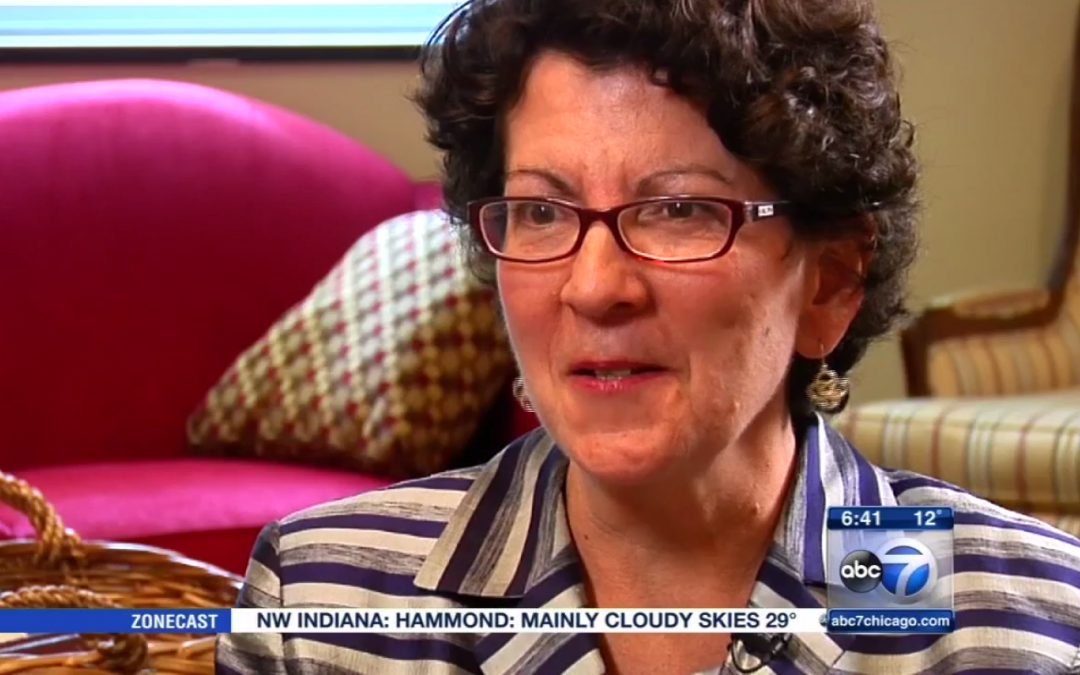
Feb 6, 2017 | aging, diminished cognition, elderly, finances for elders, financial advisors, long term care, medicare, seniors finances
Probably I’m not the only one who has seen the deluge of ads on TV for Medicare supplement insurance. One that really bothers me though is the bit with the actress saying she’s only in her 60s and “I’ve got a nice long life ahead.” She’s so smug and so sure she’s just fine and will stay that way.
The ad taps into the belief most people cherish, which is that impairments happen to other people and that they will just keep being fine, at any age. People say they want to live to be 100. Their imagination is that they will be perfectly capable in all ways and will not need any help at 100. That is belief, not truth.
What makes a “nice long life” anyway? No one ever wants to think about infirmity and cognitive decline. And yet, by the time we reach that nice old age of 85 at least one in three of us, and maybe even one in two will have Alzheimer’s disease. Not so nice. And oh, by the way, that supplement insurance the actress is promoting doesn’t pay for care if you need it at home long term. Neither does Medicare.
Every financial planner who has a client over age 65 needs to be considering that the “nice long life” that is part of our cultural fantasy is indeed dreaming for most people. It’s not about longevity. That we’ve probably got. It’s about good health in old age. That, we have definitely not totally figured out. As 10,000 people a day are now turning 70, it’s time to get past fantasy and consider how to make that long life a lot safer financially.
Are your client’s assets enough to pay for the care they are likely to need? If not, you, the client and her family must engage in the essential discussion about who will care for the client as she ages and how much it will likely cost. One must do the math. The cost of caring for someone with dementia at home is staggering. And the advisor needs to calculate it. This is not considering the usual figures thrown around about “the average couple at age 65 will spend “x” dollars on out of pocket medical expenses for their lifetimes”. None of those commonly used figures consider what it may cost to pay for a person with Alzheimer’s disease who lives for 7-20 years with the disease. Help from someone will be absolutely necessary for anyone with dementia.
Your portfolio review with a client at retirement is a good time to talk it over and bring up the actual, not fantasy prospects for the future. And here’s hoping you will not be influenced by stupid TV commercials about what the future may look like. Longevity can be wonderful, yes, and you can help make it financially safer for your older clients. A nice long life is certainly possible. And a long life with accessible assets to cover long term home care near the last phase of life is ideal.
Carolyn Rosenblatt, RN, elder law attorney, AgingInvestor.com

Jan 30, 2017 | aging, diminished cognition, elder investor, elderly, financial elder abuse, scammers
Imagine this: your aging client is 86 years old, slightly grumpy, and he thinks he knows better than just about everyone else on nearly everything. He’s quite willing to follow your advice, though and that’s what makes a good relationship with him.
Lately, he’s got you worried. He is obsessed with the internet. He spends many hours a day on it and he tells you about this man he met online who has an amazing investment he wants to get into. When he starts telling you about it, it sounds like a scam of the worst kind. You warn him not to do it and he says you don’t understand.
He asks you to liquidate one of his investments you manage. You do it. He tells you how happy he is that he’s got this great thing going now. A month later he calls you and wants to liquidate a lot of his funds to raise some significant cash for his “friend” who has the scammer-sounding “investment”. You say, “don’t do this!” He won’t follow your advice. This is new, and puzzling. What should you do?
Rules tell you that you must follow your client’s instruction and that you are not supposed to reveal his financial information to anyone. Should you call Adult Protective Services? Can you? You are not sure what to do.
Here’s the answer: you are permitted to report financial elder abuse. According to the regulators’ Interagency Guidance on Privacy Laws and Reporting Financial Abuse of Older Persons, which discusses the issue in detail, you are also permitted to disclose this information to protect against or prevent actual or potential fraud.
But what if your client think his internet “friend” is fine even if you are seeing telltale signs of fraud in your client’s interactions with the scammer? You can report the apparent crime in an online form to the FBI as long as you know enough detail from your client. I think anyone who suspects internet fraud should do this, even if it turns out to be some legitimate thing in the end. It probably isn’t. And your client’s money could all be gone if you do nothing. Would that be okay with you?
Financial professionals need to be clear about your role in preventing and stopping elder abuse. Law enforcement can’t always stop the criminals but sometimes they do. No one can stop what is never reported to them. Do not be misled by the misconception that protecting your client’s private information is supposed to stop you from reporting apparent fraud and abuse.
You could be the difference between your client’s safety and your client being wiped out financially. Take a deeper dive and get very smart in an accredited one hour online course about stopping financial abuse. Click here now.
Carolyn Rosenblatt, R.N., Elder Law Attorney & Dr. Mikol Davis
co-founders of AgingInvestor.com and AgingParents.com

Jan 27, 2017 | aging, aging investor, declining health, diminished cognition, elder investor, elderly, finances for elders, financial advisors, financial capacity, financial elder abuse, financial judgement, handling money for aging parents, handling money for seniors, long term care, long term care insurance, medicare, senior investor, seniors finances
Do you have older clients who seem to be doing really well physically? Some of our aging folks are remarkably sharp and we can all be lulled into a false sense of security with them. This is a heads up warning about a real situation that you can perhaps help clients avoid by a simple step. Bear in mind that your older clients may be alert but still have trouble keeping track of the occasional bill. That can lead to a true financial disaster. Here’s what happened to one person we met at AgingInvestor.com who could well be your client.
Ruth is 88, still quite independent, taking care of herself at home. She does her own shopping and cooking, drives and pays her own bills. Great at her age, right? But when it comes to memory, that’s a problem from time to time. And forgetfulness plus an unforeseen glitch caused a financial nightmare for her. Here is what happened.
Ruth has Medicare and supplemental insurance. That extra 20% the supplement pays doesn’t sound like a lot, unless you have a crisis and have to go to the hospital.
Ruth paid her bills by check each month. But sometimes her mail carrier made mistakes and put envelopes in the wrong box. That’s just what happened with Ruth’s supplemental insurance bill. She didn’t pay the bill one month because she never got it. That was the glitch. Unfortunately that is exactly the month that she had a major health crisis and had to be hospitalized. She never knew that her supplemental insurer had missed a premium payment from her until they denied payment to the hospital for the amount due after Medicare paid the hospital in full. She was very upset and called them but they brushed her off when she told them what happened. She had never paid late nor had she ever missed a payment. They didn’t care. Her bill for the amount Medicare didn’t cover was over $80,000. They flatly refused to pay it.
She tried to call again and again but got nowhere. She sent a letter but received no response. Ruth’s case is not the first time we’ve seen a situation when an older person fails to pay an insurance premium notice either because of illness, dementia, not receiving the bill or other valid reason. Some companies will allow reinstatement of coverage when the amount owed is paid in full. But Ruth’s former insurer has been horrible; clearly to get out of the large bill they would have had to pay. They’re probably happy about it but of course Ruth is distraught.
Now imagine that Ruth is your client. Most write checks by hand for paying bills, as they have done all their adult lives. Lots of people in their 80s don’t use a computer or are only able to do so with many limitations. They don’t use auto debit for paying bills automatically.
There is one thing you, the advisor, can do to prevent a disaster like Ruth’s. Work with your aging client and their family to get them set up so that payments for ongoing, recurring expenses are auto debited from a bank account. This applies most especially to insurance premiums. As long as you are overseeing the finances for these older clients, think about this simple preventive strategy you can urge them to use to protect their financial safety. Sometimes no one thinks of it. Sometimes the family is also lulled into a false sense of security because the elder is so independent in other ways. Bill paying is a vulnerability and you can think of measures to make it less so.
That medical bill coming to a client because of a simple error, forgetfulness, or glitch can be a source of extreme stress. Take the time now to talk with your client about the prospect of auto pay for all of their recurring bills. Even if they are unsure of how to set it up, a family member, a friend or money manager can offer to do this for them. It’s a small, basic measure but hugely helpful to prevent financial loss

Jan 23, 2017 | elderly, finances for elders, handling money for aging parents, handling money for seniors, long term care
We at AgingInvestor.com met with some forward thinking business owners, all under age 40, expressing their concerns about their aging parents. They weren’t sure what should be set aside or what to plan for their loved ones. Any of these business owners could be your HNW clients.
Some had purchased long term care insurance for a parent and we were happy to see that good planning. Others figured they’d have to pay out of pocket when the need arose.
The gap between what older people think and expect and what really happens as we age is startling. And it is likely to throw the burden of paying for it on the financially successful adult children of these elders in denial. Some of their parents never had much wealth. Others have depleted their assets by outliving them or by other factors.
What about the dollars and cents? The Genworth Cost of Care Survey is done every year and provides average rates charged by service providers for homemaker services, home health aides, adult day health, assisted living and nursing home care across the country. And you can also search by state to see the average where a client’s parents live. Even the lowest level of care, someone to come in and help with cooking, shopping, laundry and errands averages $19 per hour, the national median hourly rate. The national median monthly rate for assisted living is $3500. And in my state, in urban areas and well populated centers, it is twice that.
If your clients must consider paying for long term help for their aging loved ones, it’s planning you need to do with them. It’s a special fund or targeted assets to be used for aging parents as needed.
Educate yourself first. Figure out how much it may take. According to a colleague who knows long term care insurance benefits, the average time a person with this kind of insurance collects policy benefits is three years or less. If it’s three years at $43,200 a year for assisted living, not factoring in the 2% annual increase in cost, that’s $129,600. And that’s under the unlikely scenario that a person who lives into her 90s, say, is going to stay level in what she needs over that three years. More likely than not, her needs will increase and the facility will charge more every month for more services. We see clients who are shelling out over $10,000 a month for a parent to be in assisted living. When parent is infirm and needs a lot of things from the staff, every new thing increases the monthly cost. A few years of that kind of expense can take its toll on your client’s retirement planning.
Near the end of our fruitful discussion, one of the participants asked “What do the other 99% in our society do when an aging parent needs long term care?” The answer: they either provide the care themselves at a very high personal cost, or their parent spends what assets he has until they’re gone. Then he ends up on Medicaid in a shared little rom in a nursing home. No one wants to see that happen if you can help it.
Here are the takeaways to share with your HNW clients who may end up supporting aging parents or paying for their care.
- Look ahead. Discuss what needs your client’s family, particularly elders may have and what may be required from your client to meet potential obligations created by their family members.
- Consider whether your client should buy long term care insurance for parents if their parents are not wealthy and have health issues. Do this before their parents turn 60 if you can. The elders may become uninsurable or premium cost may become prohibitive later.
- Educate your client about the real costs of long term care. If they’re under 40 as our audience was, they are probably not thinking about their potential future obligations to parents who are not financially successful. This was an unusual group.
Smart planning now can save your client shock and distress later. If they are responsible folks, help them to expect the long run as their parents age. People in the 85+ age group are the fastest growing segment of our population. Most of these elders are not wealthy and someone will need to care for them.
Your client can get a great head start with planning and communicating well with elders in our book, The Family Guide to Aging Parents. It can help YOU too, if you are in the situation of caring for your own aging loved ones. Click here for your copy.
Carolyn Rosenblatt, RN, Attorney, AgingInvestor.com and AgingParents.com

Jan 12, 2017 | aging, aging investor, Alzheimer's disease, diminished cognition, elder investor, elderly, finances for elders, financial advisors, financial capacity, financial elder abuse, financial judgement, handling money for seniors, investor, scammers, senior citizen investor, senior investor, seniors finances, wealth transfer
A Lurking Danger You Need To Warn Your Clients About
There is nothing wrong with putting on a dinner or lunch for prospects while you give them a pitch about a product you like. But unfortunately, a free meal brings people out, especially older folks and they become sales targets for unscrupulous people. FINRA, in seeing how these seminars are too often a vehicle for fraud and exaggeration preying on unsuspecting elders, has issued a warning to seniors. You can be the messenger to provide a heads-up for your own clients about this.
Too many unethical people are using the setting of a free lunch to sell inappropriate investments. The annuity scams are notorious for this. And the scammers love impaired elders who are so easy to fool.
As people age, about a third of them will develop Alzheimer’s Disease. Most of the victims of this insidious disease are women. When the earliest signs of the disease emerge, research tells us that impairment of financial judgment is already underway. The predators have no trouble talking a senior who lacks the ability to see a scam coming into buying whatever they’re selling. It happens every day, not just in the free lunch seminar.
FINRA’s alert for investors about “free lunch” investment seminars is specific. Your older clients might not get that alert unless it comes through you. Here’s the gist of what FINRA wants seniors to know.
The FINRA Investor Education Foundation researched people over 40 to find out how many have been solicited with offers for a free meal seminar. 64 percent of respondents had been solicited, which means that the odds are, your clients will be among them. What the research also showed was that half of the sales materials contained claims that were apparently exaggerated, misleading or otherwise unwarranted. 13 percent of these seminars appeared to involve fraud, such as unfounded projections of returns and sales of nonexistent products
Slick and unscrupulous “advisors” and sellers have been at this for years, pitching unsuitable products. They’ve stepped up their game as the population ages. They want every target they can get. An easy way to warn your clients is to give them a one-sheet Client Update we have created for you. Get yours here or by clicking below and send it out to everyone in your book of business. Some of them are older clients and some have aging parents or grandparents who need to know about this.
You’ll look good by showing that you care about what happens to your clients and they’ll appreciate the message.
You can improve your expertise with your older clients in a book written especially for you, Succeed With Senior Clients, A Financial Advisor’s Guide to Best Practices. Get your copy by clicking here.
Carolyn Rosenblatt, RN, Elder Law Attorney, AgingInvestor.com and AgingParents.com

Dec 21, 2016 | aging, elderly, finances for elders, handling money for aging parents, long term care, Obama care
The short answer is “yes”, unless every one of them is high net worth. For those who are very wealthy, there will be no effect as they will pay out of pocket. However for any client who lives long enough to spend down everything and to get low on funds the effect will be palpable. Though neither party is talking about what happens to seniors of modest means with the repeal of the Affordable Care Act here’s the hidden truth.
Low income seniors who could not afford the high cost of long term care had no choice when they ran out of money except a nursing home. Until Congress passed legislation called Community First Choice (CFC), that is. This is a bipartisan supported program that is optional for states. It gives seniors and disabled people a choice to remain at home and supports family caregivers. If a state adopts CFC, it receives extra federal funding (6%) to pay for personal attendant services. This funding is critical. States who want CFC must make the initial investment in home and community-based services before they see savings over the long run.
According to the National Council on Aging, eight states have adopted it so far and at least four more are applying for it or are considering applying. With our growing senior population it is right to give elders a choice of not having to go to a nursing home, a fate many dread and fear.
Even though care at home is normally cheaper and better than nursing home care, there is still a bias in our Federal law that compels states to pay for nursing home care, but not home care. It makes no sense. The CFC is an effort to eliminate the bias in the law favoring nursing home care and promote doing what is better for our elders: allowing them a way to pay for home care using family to provide it with financial support.
Repealing the ACA will de-fund this successful CFC program.
The Republican Platform states: “Our aging population must have access to safe and affordable care. Because most seniors desire to age at home, we will make homecare a priority in public policy and will implement programs to protect against elder abuse.”
Really? If this is a priority, how has a helpful program for seniors been ignored in the dialog about the necessity repeal Obamacare? And what about the millions of people ages 55-64 who need health insurance and can’t afford it? Expanded Medicaid and subsidies help them now. Those programs are on the chopping block in the oncoming rush to “cut government spending”.
The elder and disabled adults who need Community First Choice funding and all community based efforts to keep them out of nursing homes are not marching in the streets. They need total care or help to maintain themselves at home. They are not in the news. They are a population without a voice except by aging organizations who fought for CFC in the first place. Any client who spends a fortune on long term care over years and depletes her assets could end up needing Medicaid. Those are the most at risk folks. No matter how skilled you are no one can make money last forever for those who are less than high net worth.
Do not be fooled into thinking that those who relish the idea of quickly trashing Obamacare really are concerned about what happens to low income seniors. These seniors comprise a significant part of our population. The elders with modest means and modest savings who need long term care can’t pay for it. They are the ones being forced to go to a place they don’t want to be.
The Money Follows the Person Program, which assists states in making home and community-based services more widely available expired in October 2016. If Congress is throwing out all things related to the Affordable Care Act, what are the chances of renewing this program?
If you have aging clients who might live long enough to run out of funds, this will directly affect what happens with them. If you are planning for them for lifelong financial safety, consider that much of what formerly was in place to keep them out of nursing homes will likely be gone should they live to be 100 and are no longer wealthy. Be sure to keep in mind that nursing homes are about three times the cost of staying at home with care in place there.
By Carolyn Rosenblatt, RN, Elder Law Attorney, Dr. Mikol Davis, Geriatric Psychologist, AgingInvestor.com

Dec 14, 2016 | aging, elderly, finances for elders, handling money for aging parents, medicare, seniors finances
Promises to repeal Obamacare (the Affordable Care Act) abound but “replacement” still appears very murky. Many agree that repealing it is warranted (though many disagree) but few can agree on what replacement would entail. Here is a look at some of the real life effects of repeal, focused on the minimum wage worker. The articulated plans for replacement miss these workers who are most likely to lose health insurance coverage altogether when mandates are repealed.
According to the Bureau of Labor Statistics, In 2014 there were 77.2 million workers in the United States paid at hourly rates, representing 58.7 percent of all wage and salary workers. Among those paid by the hour, 1.3 million earned exactly the prevailing federal minimum wage of $7.25 per hour. About 1.7 million had wages below the federal minimum. The average American worker got paid $24.57 per hour, or $850.12 per week. And averages can be deceiving. They lump together those who may be educated with those who have less education and value in the workplace. For this discussion, we focus on those who work full time, at the low end of the wage scales.
Repeal will immediately remove the employer mandate which means that employers who do not care to undertake the expense of insurance coverage for their groups of employees would simply stop covering them. Millions of workers would lose coverage, and be expected to pay for it themselves with so called “health savings accounts” or tax credits.
Those who have announced their positions on this, particularly those most likely to influence what happens after repeal believe that health savings accounts are the answer and that everyone without insurance will then be motivated to save their money and buy coverage themselves.
Reality check: the lowest income workers do not have any money to save. It is not about motivation. It is about living at the edge of poverty. These workers spend every penny of that minimum or low end wage on food, clothing and shelter and there is nothing left to pay for insurance without the existing subsidies. The myth of health savings accounts is that there is, in fact, money available to save so you can pay for insurance yourself. Repeal will mean no health insurance subsidies, which are a controversial feature of Obamacare and one of its main pillars.
Workers who only have coverage through employers who then drop coverage would return to being uninsured. When they get sick or injured, they will not receive treatment, or they will go bankrupt with medical bills they cannot pay. Essential preventive care will not be available as it is now in all insurance policies and minor problems become major health issues, some resulting in death.
Another premise of the as yet undefined replacement plan is that offering tax credits will also motivate people to buy their own insurance when subsidies and the individual mandate, now also main pillars of Obamacare, are gone. As with health savings accounts, the same incorrect assumption applies. Low wage workers do not have enough money to advance for monthly insurance premiums to attain a tax credit at year end. Simply put they can’t afford it at all and a benefit at year end does not create a higher monthly salary for them. The politicians and appointees who want to use health savings accounts and tax credits as replacements for health care insurance subsidies are the same people who vehemently oppose raising the minimum wage. The majority in power will succeed in that.
Ask any minimum wage worker: Do you have extra money left after you pay for your rent, transportation, kids’ needs and groceries each month? They will say no. Anything left buys a child a pair of shoes, not health insurance. They will take a chance on never getting sick, never being in an accident and never having a family member who has a chronic or life threatening health condition. How realistic is that?
Anyone who is working full time and is not quite poor enough to qualify for Medicaid is not in the world of the cabinet picks and advisors who created the fantasy of how it is supposed to be with tax credits and health savings accounts. Perhaps the bureaucrats cannot imagine what it is like to have zero in the bank account after the most essential costs of everyday life are paid from one’s paycheck. Amid that and the force that will keep wages low for the lowest on the wage ladder, where are we leaving so many who work every day but will have no health insurance?
Replacement needs to be thought out in terms of the millions of workers who stand to lose coverage altogether when the law that now helps them buy health insurance is repealed. Keeping coverage for those with pre-existing conditions sounds fine, if you can pay for the insurance premium that is. If you lose your coverage, it matters not whether the insurer would take you with a pre-existing condition. You have to be able to pay for coverage whether there is a pre-existing condition or not. And keeping coverage in place for one’s children until age 26 also sounds fine, but only if you, the worker are covered and can pay for the insurance yourself or you are lucky enough to get it through your employer.
The ACA also expanded Medicaid for those living at and below the poverty line. If Medicaid is shrunk, as some politicians want, so as to “cut government spending” it will destroy the only means the least fortunate have to get any coverage at all. Must we let them die in the streets? No charity in existence buys health insurance for anyone. That is the very reason why Medicaid exists–to cover the poorest among us. As flawed as Obamacare is, that is all there is for over 21 million previously uninsured people. My hope is that better solutions can be found than completely obliterating coverage for so many. Note to politicians: get with it and figure it out!
Carolyn Rosenblatt, RN, Attorney, AgingParents.com and AgingInvestor.com

Nov 15, 2016 | aging, elderly, financial capacity, handling money for seniors, seniors finances
Interview: Common Challenges in Helping Aging Parents
Hello everyone. Welcome to better health while aging, a podcast that gives you strategies and tips about improving the health and well-being of older adults. We discuss common health problems that affect people over age 60, the best ways to prevent and manage those problems and we also often address common concerns and dilemmas that come up with aging parents and other older loved ones, like what to do if you’re worried about falls or safety or memory or even the quality of a seniors healthcare.
I’m your host Dr. Leslie Kernisan. I’m a practicing geriatrician, so that means I’m a medical doctor specialized in geriatrics, which is the art and science of modifying healthcare so that it works better for older people, and for their families.
Today’s episode features a special guest and we are going to be talking about common challenges related to aging parents. My guest is Carolyn Rosenblatt. She is an attorney and a registered nurse, and for the past several years she and her husband Dr. Mikol Davis, who is a geriatric psychologist, have specialized in helping families resolve difficult issues related to older parents. They have a website at AgingParents.com.
Carolyn is the author of “The Family Guide to Aging Parents” and several other books about assisting older adults with legal, financial, and life issues. She also write a column about aging for Forbes.com.
I have read many of Carolyn’s Forbes columns over the past few years and also read her book recently as I was writing one of my own articles about advance planning for legal and financial issues. So I’m thrilled that she was able to join me today to share some of her insights on how to manage some of the common challenges and dilemmas that families often struggle with.
Carolyn, welcome to the show.
Questions:
- Tell us about your practice and how did you come to specialize in families and aging parents?
- What are the most common types of problems that people ask you to help them with?
- Some common scenarios we can discuss:
- People are sometimes concerned that their parent is losing mental abilities, or becoming “incompetent.” They also often complain that their parent is refusing to talk about the issues and refusing to go see a doctor. What are some of your suggestions to help families resolve this?
- People worried about how their parents are spending money, and/or worried that someone else is influencing the spending (e.g. a sibling)
- People worried about their parents driving
- People who want their parents to plan for decline in the future but the parents refuse or avoid the subject
- How can older adults and their adult children plan ahead to avoid many of these difficult situations? Can you share some favorite resources that are effective in helping people through this?
- For families that have set up springing powers of attorney, there is often a requirement that a doctor or other clinician say the older person no longer has capacity to manage finances or whatever power is in question. But families often say they can’t get the person to the doctor/psychologist to obtain this assessment. Suggestions?
- There is really a lot that families could and should do to plan ahead. If people are feeling really limited in time and energy, what do you think are the most important or high-value things to do, when it comes to older parents who are doing ok now.
- Another angle on this: what are the things that people end up regretting not doing the most often?
- You’ve written a lot about preventing financial abuse of older adults. What are some useful steps you recommend to prevent this from happening, or from causing serious financial losses?
- You have a chapter on helping older parents from a distance, and you write about how you and your husband eventually hired a care manager, in order to have someone close to your mother-in-law. What do you recommend for people who feel they can’t afford to hire a care manager?
- How can families deal with declining abilities, dementia, and physical dependency if there isn’t family to provide care or money to hire someone?
- How have you and your husband planned for your own future? (We can skip this if it’s too personal.)
At the end I will tell people they can learn more about you and your special consultation practice at AgingParents.com.

Oct 28, 2016 | aging, aging investor, elder investor, elderly, finances for elders, financial advisors, handling money for seniors, investor, senior investor, seniors finances
Proving Value to Retired Clients: Creating a Financial Checklist
Many of us in this society have a very negative image about aging in general. We don’t want to be “old”. It is fueled by advertising on TV, movies, print media and other outlets with a consistent message: aging is bad, being younger and turning back the clock is good. We are a work ethic driven culture. When we are older and no longer “productive” we are generally seen as less valuable.
Then there is the fear and denial about dying and death. Our culture has been called the only one in the world that thinks of death as something optional. Note how we talk about it to family–“in case anything ever happens to me… Besides it being a fantasy that maybe something” won’t happen to us, it keeps us from planning, from preparing our loved ones and from being responsible about our older years, possible declining health and the burden ignoring these things can put on our families. Reaching retirement age is a time to do planning about more than money.
Financial advisors are in the planning business. You look ahead, analyze, budget and calculate. But your clients may not be on the same page in your view of the future. They are busy being in denial that they may ever get ill and die. You can help them. In doing so, it may also make your job of talking about such issues as long term care, budgeting and spending easier.
Most people do not want to burden their loved ones. Most of them do not want to trouble adult children unnecessarily as they age. That is your best selling point for bringing up the personal matters. These include how every senior and every retiree needs to plan for things in their own lives that go beyond how much money they’ve saved and how it will be spent having a great retirement.
Here at AgingInvestor.com we see the messes people leave behind when they nurture the Great American Fantasy that losing independence won’t happen to them and that they will live happily to age 100 and die peacefully in their sleep. Family members can spend years cleaning up the disaster their older loved ones leave because of failure to plan and take care of business. It is truly not fair to anyone. It leads to anger, resentment, family conflicts and sometimes to loss of wealth through ignorance. We’ve heard it and seen it countless times. We put a checklist together to help people avoid these disasters created by the fantasy.
What Can You Do About It?
You can give your clients this checklist next time you sit with them and review the portfolio. You can gently urge them to do what the list says is needed. We’ve broken down the essentials into 10 points, a “to do” list if you will. You can encourage them to take care of the items on the list, if they haven’t already. In general, the to do list includes updating the estate plan, having critical documents in the right hands, providing necessary financial, computer and account information to trusted family and having a family meeting to educate one’s heirs about the older person’s affairs. This is how your client gets a family ready. This is how they avoid unduly burdening anyone. This is how they free their loved ones from distress and unnecessary work when they have to take action as an aging parent declines and passes away.
Some of your clients will brush off your suggestion. They love that Great American Fantasy and aren’t about to give it up. Others will thank you as they have thanked us and will go forward. Their families will be forever grateful. You’ll look like the caring, smart and responsible planner that you are.
Get your free Ebook and the Financial & Personal Checklist For Smart Retirees, click HERE.
By Carolyn Rosenblatt, RN, Elder Law Attorney, AgingInvestor.com

Oct 28, 2016 | aging, elderly, finances for elders, handling money for seniors, seniors finances, Uncategorized
In all the proposed rules by Finra and the SEC to address financial exploitation of seniors, advisors are urged to report suspected abuse to the local Adult Protective Services or to call the police. Unfortunately that is not always a solution. There seems to be a lack of clarity about how things work. Here’s a typical scenario that illustrates an issue.
Myra is 87 and her daughter, Lexie has been taking advantage of her for years. Myra feels sorry for her daughter because she can’t seem to hold a job. Never mind she has a drug habit. Myra has means and she often gives Lexie “loans” that are never repaid.
Lexie gets a power of attorney from Myra, goes with Myra to her financial advisor and tells the advisor that Myra needs $80,000 for a trip they are going to take. Myra is disabled and never travels. The advisor knows this. Advisor decides after seeing several of these demands for withdrawing Myra’s funds under suspicious circumstances that Lexie is abusing Myra. The total amount withdrawn at Myra’s request is over $150,000 in six months, which is highly unusual.
Advisor calls the police. They refer her to Adult Protective Services. APS takes a report over the phone, asks questions and then asks Advisor to fill out a report form. She fills it out and reports the recent questionable $80K demand and withdrawal and she lists the total taken of $150K. She puts Lexie’s name on it as the person suspected of financially abusing Myra.
APS sends a social worker out to investigate the complaint and to visit Myra at home. Myra finds the worker to be very nice and they chat. “Has your daughter ever pressured you to give her money?” the worker asks. “No”, says Myra. “Do you remember giving her gifts or loans totaling $150K this year?” the worker asks. “I don’t think I did that” Myra says. The worker asks if she is in the habit of giving money gifts to Lexie and Myra says yes, that Lexie is her daughter and she needs some help sometimes. The worker concludes that giving money to Lexie is what Myra wants and the case does not go any further. No one has tested Myra to see if she is competent to understand the consequences of giving her assets to Lexie, particularly since she has two other adult children.
In this case the facts are not clear enough to prove that a crime was committed. APS will not recommend that Lexie be prosecuted because even though giving away money is not in Myra’s best interests, she is assumed to be competent to do so. In this case APS is not solving any problem and takes no further action. If Myra did not want the funds to be given to Lexie it would be different and elder abuse could be proven perhaps. As is there is too much doubt about Myra agreeing to be taken advantage of by Lexie, no prosecutor could meet its burden of proof.
The Other Option
Lexie’s other two siblings were not initially aware of the abuse by Lexie. Their potential inheritance is directly affected by their sister’s actions and when they find out they call APS also. The case is closed and they get nowhere. They are furious.
They consider another option. If there is no crime here that can be proven, there may be a civil case. They contact an attorney who handles civil cases of elder financial abuse. The attorney does an investigation and finds out that Lexie has bought a condo with the money taken from Myra. The attorney successfully proves that Myra was duped by Lexie and the matter is settled by Lexie’s attorney agreeing to sell the condo and give the proceeds back to a fund set up for Myra in case she needs more cash as she ages. And the settlement agreement says that Lexie will inherit no part of the fund. Further, the power of attorney Lexie got is torn up and Myra appoints a more responsible agent, another daughter who now oversees all of Myra’s finances.
With a misunderstanding of how law enforcement works, there is a belief that all one must do is report to APS and somehow, financial abuse will be stopped. But when APS finds insufficient proof, or a wiling victim like Myra, they do not intervene. They are essentially an arm of law enforcement. A civil case is outside their sphere and a civil attorney must be consulted to explore whether one can pursue that possible way of recovering an elder’s assets that have been wrongfully taken.
The Takeaway
The important thing to know here is that APS is limited in what it can do. A criminal case of any kind has to be proven “beyond a reasonable doubt.” Any advisor who wants to keep senior clients safer needs to understand that a willing victim will pretty well destroy a criminal case of abuse. A civil case is a possibility as long as there is an asset (in Lexie’s case, a condo) to get. One should know a competent elder abuse attorney to consult and find out if your client has that choice in taking legal action of if her heirs do.
By Carolyn Rosenblatt, RN, Elder law attorney, AgingInvestor.com

Oct 7, 2016 | aging, aging investor, diminished cognition, elder investor, elderly, finances for elders, financial advisors, financial elder abuse, handling money for seniors, investor, NASAA, senior investor, seniors finances
Two Things Professionals Can Do About Elder Financial Abuse
It’s vicious and pervasive. It’s growing. It has been called “the crime of the century”. Elder financial abuse, according to a study by True Link Financial, costs seniors in the U.S. over $36B a year. But can financial professionals do anything about it? We say definitely yes.
Most of us have encountered this kind of opportunistic crime at some point, among family, neighbors or friends. When we at AgingInvestor.com present to groups of professionals we ask how many have had witnessed this kind of abuse with anyone known to them. Almost every hand goes up. The question is, what can you do about it?
Many professionals are either hesitant to get involved because they think privacy concerns should stop them, or they want to take action but are unsure about what to do. Let’s clear away those concerns now.
First, remember that when your client gets ripped off and cash is drained out of the account you manage, you are losing fees for those AUM. If that isn’t incentive enough to be involved note that NASAA has already developed model rules which will require that you report abuse to authorities. Those are likely to become mandates soon enough.
Let’s look at two basic steps any professional can take now to improve your response and protect your clients from financial abuse.
Get third party contacts on file
One, you need to get from your retirement-age clients the names of several trusted others whom you can call in the event that you see red flags that abuse could be going on. Remember that family members are the most frequent abusers of aging folks. Perhaps that favorite one, Sonny Boy is taking advantage of a vulnerable parent or other relative. Be sure one of the contacts you get from your clients is not a family member, but a trusted friend, colleague or professional. Age makes all of us more vulnerable to financial manipulation for many reasons. Next time you review an older client’s portfolio, get this necessary information about whom to call if you get concerned and keep it on record.
Get permission from your client to call the third parties under certain circumstances
Two, you need not consider privacy rules a barrier if you have your client’s permission to contact the designated third parties he has identified. A legally sufficient privacy document will help you. This is an area where both legal and compliance departments should assist you to get the right paperwork in order. At AgingInvestor.com, we developed just such a model document, a product we offer to overcome the confidentiality barrier to taking action. It’s part of a senior-specific policy. And you can do it in-house on your own too with legal input. Get one done for every aging client. It resolves the question of giving private information to the designated third party. You will have the ok to act when you need to.
Caution: we do not recommend that you use an informal letter to for your client to give up the right to privacy. Consider that in our society, we use things like a durable power of attorney to give up the right to solely manage one’s finances, and an advance healthcare directive to give up the right to make end of life or care decisions alone. We don’t use mere letters for these things. You need papers that are standardized, formal and that will stand up to scrutiny should anyone question them.
Surely you do not want predators to take advantage of your clients, particularly when they suffer from any cognitive decline. That increases their vulnerability. And the integrity of their portfolios is enhanced by your own vigilance over them as they get older.
Take a deeper dive into the elder abuse subject in our book Succeed With Senior Clients: A Financial Advisor’s Guide to Best Practices. We offer you a handy checklist with the 7 warning signs of financial elder abuse, more practical tips and some true stories of how a financial professional did or didn’t get involved at the right time.
The most forward thinking financial advisors will be early adopters of these means to keep clients financially safer. Be one of those leaders!
by Carolyn Rosenblatt, RN, Elder law attorney, AgingInvestor.com

Oct 4, 2016 | aging, diminished cognition, elderly, finances for elders, financial elder abuse, handling money for seniors, scammers, seniors finances
The Emotional Impact of Financial Elder Abuse
When older persons are deceived financially by hose they trust the most, the emotional effects can be devastating. The problem of financial elder abuse costs our older population over $36 billion per year in the U.S. alone. The reasons for this rampant problem some call “the crime of the century” are complex. Many victims cognitively impaired in some way, and are therefore subject to the undue influence of greedy relatives, caregivers, professionals, or criminal predators who strategically seek out older victims. However, not all seniors who fall victim to financial abuse are affected by cognitive decline. Some competent people are seduced by unscrupulous sales pitches promising big rewards. Some are cheated by the Bernie Madoffs of the world and their cohorts who take advantage of seniors who are worried about having enough money. These victims see the pitch or offer as a way to alleviate their money insecurity and they give up their cash to those who want nothing more than to take it and run. Sometimes, the senior may want to get something for nothing or get a “great deal’ with very little perceived risk.
Abusers are not always shady characters or unscrupulous family members. Sometimes they are legitimate organizations that simply find an opportunity to take advantage of someone with whom they already have a relationship. Using a relationship of trust to manipulate an older adult is called undue influence. The laws protecting them from being victimized by undue influence vary considerably from state to state, with some defining it so vaguely that enforcement is difficult. However, whether the law is used to convict abusers of this crime or not, the effect on an aging person is devastating. It is hard enough to realize that one has been duped by a stranger. When one understands that the manipulator is a trusted relative, friend, an organization in which a person truly believes or contributes to, the pain is even worse.
Wanda’s Case
Wanda was eighty-nine years old at the time her daughter, Janis, contacted an attorney. Janis reported that Wanda had been a member of her large church all her life and had been an active participant in the congregation. She had always made modest contributions to the church and trusted all of the other members. But over time, Wanda’s memory began to decline and she got confused easily.The church began a fundraising campaign for new construction. Wanda was asked for a donation, which she gave. Then another request came and Wanda once again complied. Wanda gave larger and larger donations to the church over the next year, with the checks totaling over $100, 000. Janis grew increasingly alarmed, because her mother clearly was in need of help. Wanda was found lost and wandering near the church after one day. The church itself had recorded the incident and a church worker had taken Wanda home. Janis was concerned that Wanda would run out of?money. She was physically ok, but her mental condition was becoming a serious enough problem that Janis believed she should no longer live alone. And Wanda trusted the church, to the point that she did not believe that anyone there would do anything wrong. This was a case of the church using its position of influence over an impaired member to elicit larger and larger financial contributions from her. They took advantage of an older adult who had become lost and confused after church, and they knew it. Wanda could not perceive that she needed care, which was going to be expensive, and that she could all her reserves by these overly generous donations. She was not able to act in her own best interests. She ?believed that she could not possibly run out of money. When her daughter, Janis, tried to explain that she had to stop giving to the building fund, Wanda was incredulous. She simply could not process the reality that she was going to lose all her savings if she kept up the contributions.? She became angry with her daughter for even suggesting that her actions were not right and that the church was out of line doing what it did.
Wanda’s emotional response to the abuse was to be in denial about it. She likely not able to fully process what had happened and felt that Janis was being disloyal to the church. The matter did get resolved. When the church was contacted to meet and discuss the pattern of solicitations they had sent to Wanda and their record of her being lost after church services, they immediately contacted an attorney who put a stop to their actions. Janis was able to watch over Wanda after that and she did obtain help for her. Wanda’s anger at Janis was an unfortunate effect of stopping the abuse. Wanda would likely have been angry at the church had she been able to perceive that she was being manipulated. However, she was cognitively impaired and did not see?the full picture.
The Emotional Impact of Abuse
Undue influence is not the only means of taking advantage of seniors. Any kind of elder abuse can be devastating. Denial is common after older victims discover financial abuse. When a scam is underway, they tend to keep up hope and continue engaging with the scammer. Despite warnings from family, friends, and advice from knowledgeable others, they continue to believe that the big payoff is coming. Or they are unable to embrace that they have made a mistake and trusted an untrustworthy person. Sometimes, even after the evidence of fraud mounts, the victim continues to give money to the predator. They have put their trust in someone whom they very much want to believe was trustworthy. When the payoff does not come, or nothing that was promised materializes, they eventually realize they were duped. The effect is sometimes intense shame and embarrassment. Living with this shame often leads to depression.
Suicides resulting from financial abuse have been reported. Some never recover emotionally from the feeling of horror that they were “so dumb” as to fall for a scam that in retrospect looks a lot more obvious. It damages a person’s sense of self, and sense of being able to trust one’s own judgment. It can go to the core of a person’s self-esteem, leaving the victim with a belief that he can no longer trust himself with anything financial. When a senior loses most or all of her assets and is left impoverished, it becomes a constant reminder of the shame of being duped by someone else. Losing a home can force the person to live somewhere he does not choose to be. That can be with relatives if available, but it can also land him in a Medicaid bed in a nursing home where few would ever want to live out their last years.
Prevention Strategies
No one is totally immune from fraud and financial abuse. Anyone can be victimized. Many a sad tale is told by an adult child of a victimized aging parent that “I trusted my father and didn’t want to question him.” Or, “I thought since my mom was a CPA, she would never fall for that.” Part of the problem is the perception adult children and even some professionals have that certain folks are never going to be abused financially because they are smart, or experienced with money matters. It is simply not true that education or experience protects everyone. Working with older adults puts professionals in a position to be vigilant, to educate about the risks of abuse out there, and mainly to pay attention.
Using Resources to Help Victimized Clients
While the criminal justice system prosecutes the relatively small number of abusers who are reported to authorities, it does not do much to help the victims of abuse. Money stolen from older people is often long gone by the time a predator is brought to justice. When a criminal is prosecuted successfully, the court will order that he make restitution of stolen monies to the victim, but enforcement of restitution orders can be problematic.
What is almost entirely lacking is any resource to help a victim of financial abuse manage the emotional effects of the crime. We simply do not fund this in our justice system. If victimized seniors wish to get emotional support or mental health help to recover from the impact of financial abuse, they would have to do so on their own. The cost is clearly a barrier, though Medicare does provide for psychological services. However, the benefit has limitations. A diagnosis is required for the provider to get payment. And many people attach a stigma to getting mental health help, which is an unfortunate perception that stops some from obtaining the needed psychological support for recovering. If there is a civil case of elder abuse with a successful outcome, and financial damages are actually awarded to the victim as a result, the award may include expenses for psychological treatment for the victim. Therapy is one means a victimized person can learn to cope with the emotional distress, shame, and? humiliation of being taken advantage of by any financial abuser. There is little doubt that those who receive supportive services after victimization cope better and have a better chance of healing from the trauma.
Professionals’ Roles with Abuse Victims
Professionals who work with aging adults in any capacity will likely encounter someone who has been victimized or is in the process of being taken advantage of by another. It is important to know their own community resources to provide information to anyone who may need help. Understand how difficult it must be for the person who has been victimized, and offer a respectful referral to a local resource. Local mental health providers can be found through the American Psychological Association, Psychologist Locator, community service agencies such as Jewish Family Service Agency (serving people of all faiths), the Alzheimer’s Association, or senior centers throughout the U.S. Most offer information and referral to local providers in the senior’s county.
Warning Signs
When suspecting financial elder abuse, those working with them should be aware of these warning signs:
1. The presence of a new “friend” in a client’s life who has an inordinate interest in the older person’s accounts or assets, and who gains access to any of them.
2. Sudden change in a Durable Power of Attorney document.
3. Isolation of the older adult from friends, family, and others close to them.
4. Large gifts to strangers or people they don’t know well.
5. Complaints about having reached maximums on credit cards when this has never happened before.
6. Frequent email or telephone contact with any stranger who establishes a relationship with the senior that seems addictive.
With the effort of those in the community surrounding older adults, we can all take steps to intervene and prevent or stop abuse. If something seems odd to you, speak up, ask questions, step in where you can. You just might be the key to keeping a senior financially safe. And if you learn of abuse in the course of doing business with a senior client, a kindly approach in offering emotional health resources lifts both you and the victim.
BY CAROLYN ROSENBLATT, RN, ELDER LAW ATTORNEY
Carolyn Rosenblatt has over forty-five years of experience in her combined professions of nursing and legal practice. She is co-founder of AgingParents.com, a resource for families, and Aginglnvestor.com, offering educational training and products. She can be contacted at (415) 459-0413, carolyn@aginginvestor.com.
REFERENCES
Journal of Accountancy. 2015. “Emotional harm of elder financial abuse outweighs its financial damage.” www.journalofaccountancy.com/news/2015/jun/elderfinancial-abuse-201512535.html. Accessed January 2016.
MetLife Study on Elder Abuse, www.metlife.com/assets/cao/mmi/publications/studies/2011/mmi-elder-financial-abuse.pdf. Accessed January 2016.
Rosenblatt, Carolyn. 2015. “Protecting Our Aging Parents from Abuse.” In The Family Guide to Aging Parents: Answers to Your Legal, Financial and Healthcare Questions. Sanger, CA: Familius, 284-296., 2015.
“Common Elder Specific Issues.” In Working With Aging Clients: A Guide for Legal, Business and Financial Professionals. Chicago: American Bar Association, 71-76.
This article was originally published in the CSA JOURNAL 66 / VOL. 2, 2016 / SOCIETY OF CERTIFIED SENIOR ADVISORS / WWW.CSA.US

Sep 28, 2016 | aging, aging investor, Alzheimer's disease, diminished cognition, elder investor, elderly, finances for elders, financial advisors, financial capacity, handling money for aging parents, handling money for seniors, senior citizen investor, senior investor, seniors finances
The Inner Workings of Clients’ Financial Decision-Making Ability
Whether you have a lot of older clients or just an occasional one, it’s critical for every financial professional to understand whether a client can safely make decisions about money. It might seem straightforward when your client is able to carry on a conversation, talk about current events or make a joke. You assume she’s fine, but it’s not that simple. Conversational ability can mask a true disabling brain condition we call dementia. It does not reveal itself easily, particularly at the earliest stage.
The insidious onset of Alzheimer’s disease or other dementia can sneak up on a client and affect the ability to exercise judgment about finances. To help your clients, you need to know the red flags of diminished capacity, a basic skill anyone can learn. You can get a free checklist to help your do that at AgingInvestor.com. But beyond that, it is critical to understand just how complex our capacity to make safe financial decisions is.
Research shows us that with the most common form of dementia, Alzheimer’s disease, financial capacity is moderately impaired even at the very beginning of the disease process. By the time a client gets to the middle stage when symptoms are more obvious she is already severely impaired in her financial capacity. No one should be making independent decisions about finances with severe impairment of this capacity.
This financial ability is defined as “the capacity to manage money and financial assets in ways that meet a person’s needs and which are consistent with his/her values and self interest.” It is broken down into nine areas or “domains”. These include cash management, basic money skills, bill payment, and financial conceptual knowledge. The ones an advisor is most likely to see and assess are knowledge of personal assets and estate and investment decision-making.
You may not discuss with your client whether he understands what a money market is but you will be ethically obligated to discuss the pros and cons of various suggested investments and the effect they will have on your client’s overall financial picture. This is the area where older clients with impairment will not be able to process the information you are offering them. When they are affected by brain disease like Alzheimer’s (over 5.5 million people are diagnosed now, with that number expected to rise dramatically) they will not be able to “get it”. You are on dangerous ground if you proceed to recommend or sell any financial product in the face of serious doubt about a client’s financial capacity.
Granted, many financial products are complicated and the average person may not grasp all the nuances. But when you believe your client is probably impaired and cannot understand any carefully worded explanation you give, you are exposing yourself to liability by going ahead with transactions for that person.
How could this get you in trouble? All of the regulatory agencies want you to keep your older clients safer and they have issued guidelines for how to do that. All of them want you to know the red flags of diminished capacity. Financial capacity is the most complex of the kinds of capacity a person can have. If you do not involve a third party to assist the client with financial decisions, you risk a bad outcome and regulatory prosecution. You also risk the heirs coming after you in civil lawsuits, charging that you should have known what everyone else knew at the time, that their mother/father was impaired and you should never have sold that, done that or caused the bad outcome.
This is a very real problem among financial professionals– the failure to recognize and act on the warning signs of diminished capacity. If you are managing a retirement account for that client, beware even more. Acting in the client’s best interest means that you need to understand when the client’s financial decision-making capacity is going downhill.
This article just touches on the complexity of financial capacity. Everyone deserves to have a deeper understanding so you can avoid prosecution or questionable accusations about your recommendations or the client’s investments. When the investment an impaired client went for at your suggestion loses money, you can bet someone will blame you if they can. Don’t set yourself up. Don’t make it easy for them to attack you.
The way around this risk of working with an impaired client is to have your client’s permission to involve a trusted third party as a surrogate decision maker for all financial transactions. How you get that permission is the subject of another article and it needs discussion. In the meantime, take a deeper dive into the nuts and bolts of financial capacity in Succeed With Senior Clients: A Financial Advisor’s Guide to Best Practices, available here. Chapter Two explains all you need to understand about the components of financial capacity. And the privacy question and how to get that trusted other involved is answered in the book too.
By Carolyn Rosenblatt, RN, Attorney, AgingInvestor.com

Sep 20, 2016 | aging, aging investor, diminished cognition, elder investor, elderly, finances for elders, financial advisors, financial capacity, handling money for aging parents, handling money for seniors, investor, log term care, long term care insurance, senior citizen investor, senior investor, seniors finances
Three Tips For Talking To Your Older Clients About Long Term Care
When you look at an older client’s portfolio, the biggest concern is probably about whether they have enough to last to the end. You calculate the drawdown, the earnings, and you spend time on those figures. But what about long term care?
This is the conversation the client doesn’t want to have. No one wants to think about being disabled or losing independence.
Of course, this is not realistic. You, the planner may not want to bring up the subject because of your own discomfort, or because you aren’t sure what to say, or perhaps because your client dismisses it if you do bring it up. But a competent planner and advisor must do so.
Consider this realistic typical scenario:
A health crisis happens to your client. It can be a fall, a stroke or heart attack, anything that is unexpected. First, there is a hospitalization. OK, Medicare covers that, together with supplemental insurance. A rehab facility is next with therapy and nursing care. Medicare covers that but only to a point. When the elder is ready for discharge, the client and family are told, sometimes a day or two beforehand, that they will have to get help for the aging loved one at home. ”Doesn’t Medicare cover that?” they ask. Unfortunately, no, they are told.
The Cost
So the family members and the client start scrambling to provide help at home. In some parts of the country the cost is about $30 per hour. According to the Genworth 2015 Cost of Care study, the national median price for someone to provide help with bathing, dressing and walking or other hands-on home help is $20/hour.
When you do the math, you realize that even if your client needs just twenty hours a week at the average cost, it will add up to nearly $20,000 a year. That is on top of other, non-covered medical expenses, such as physical therapy when Medicare stops paying, hearing aids, and many medications. And that is just the beginning. Limited hours of home care often stretch into full time care as people who have disabling conditions age.
Some people figure they can spend their assets and give things away so they can qualify for Medicaid. I would not recommend Medicaid as the best way to get quality care. First, one must be really destitute to qualify for it. And the state looks back at all financial transactions for a five year period in most states prior to the application to see what was going on, what transfers were made and if they were honestly done. Second, the care one receives under Medicaid is the most basic, may be of the lowest quality and typically is not what anyone really wants.
If you can prevent that choice, you will. Your client could spend her last days in a three bed room in a dingy nursing home if she or anyone in her life thinks Medicaid is a fine way to pay for care.
The cost for quality care at home can be staggering. In my own prosperous county, with a very high elder population, the cost of 24/7 care at home from non-nursing providers (home care workers) exceeds $200,000 per year. That is on top of the ordinary costs of living a senior has, regardless of care. And she will still be paying her out of pocket costs for other things Medicare does not cover: many medications, other non-covered services, Medicare premiums, etc.
Taking On The Long Term Care Discussion: Three things you should do
- You need to create a plan for how to pay for long term care in the future as part of your job of financial planning and retirement planning. Your client is not likely to ask you about it. Do not wait to have these discussions. Cash for the unexpected need for care could be a major expense. Your client needs to know the facts and figures. Most people grossly underestimate the costs. We have even seen financial industry publications naively state “Medicare pays for most things”. It doesn’t pay for what most people need to stay at home after any disabling condition arises.
- Educate your client about the likelihood of this need for future care.About 70% of people will need long term care in some form in their futures. Failure to plan for it can bankrupt a person or leave them in serious debt toward the end of life. Or some investments could make cash inaccessible when needed.
- Use resources to help yourself understand the real costs of home care, assisted living, and nursing home care. In order to educate your client, you need to educate yourself first. The Genworth Cost of Care study is a good resource. Here at AgingInvestor.com, we also offer tools[1] to help you. Be sure you have something to hand to and to discuss with your client. The need is now for any retiree.
by Carolyn Rosenblatt, RN, Elder Law Attorney & Dr. Mikol Davis, Geriatric Psychologist
AgingInvestor.com
[1] The Family Guide to Aging Parents: Answers to Your Legal, Healthcare and Financial Questions, and Succeed With Senior Clients: A Financial Advisor’s Guide To Best Practices and Working With Aging Clients, A Guide for Legal, Business and Financial Professionals. All 3 books are available at AgingInvestor.com and Amazon.com

Aug 31, 2016 | aging, Alzheimer's disease, elder investor, elderly, finances for elders, financial advisors, handling money for aging parents, handling money for seniors
Are Advisors Miscalculating Retirement Medical Costs?
According to CNN Money, a 65-year-old, healthy couple can expect to spend $266,600 on out of pocket costs for Medicare premiums in retirement. If that’s the advice you give clients about what needs to be set aside for medical expenses you’re missing some major facts.
Medicare premiums are a relatively small part of what it can cost when health issues arise as people age. No one likes to discuss the subject of possible cognitive impairment, but it has to be done. We see it as the financial advisor’s responsibility to bring it up, include medical expenses in the overall financial plan and get the truth out on the table.
According to a Wealth Management article on August 30, 2016, Fidelity Investments did a survey of over 350 advisors and found that 96 percent felt unprepared to help clients who had Alzheimer’s disease. This is in contrast to the reality that a person’s chances of developing the disease are at least one in three from age 85 and above. And we are living longer than ever in history. More centenarians, more Alzheimer’s.
What is the real cost of caring for a person with Alzheimer’s? I interviewed a high end home care agency owner about this question. Many HNW people do not have long term care insurance as they plan to pay for whatever they need out of pocket. Most are not aware of the cost of best quality 24/7 care they could need with their own longevity. In our work at AgingInvestor.com, we have encountered this scenario and have seen what best quality care looks like. It’s not your average home care agency.
The cost for caring for one person at home with Alzheimer’s from that agency is $300,000 per year. The workers are specially trained and well supervised. A care manager develops a plan and the workers take their shifts, prepared to deal with all manner of difficult dementia-related behavior, including violent acts and words, wandering out the door, refusing to bathe as well as those who are unable to express themselves verbally any longer. Non-specialty home care agencies do not accept this degree of client behavioral difficulty out of fear of their workers being harmed.
The ultra HNW client can pay for these costs but for everyone else, the expenses incurred with care for a progressive disease that escalates in difficulty over time could be devastating. The cost of home care is in the category “long term care” an often poorly understood subject among those outside the health care and insurance fields.
If you have clients who are at retirement age or are retired, it is a necessity that you educate them about these risks to their savings. When you work with them on their plans, you need to include the possibility, very real, that one or the other of a retired couple could develop dementia and need expensive home care. If you think they should just go onto Medicaid, think again. Every state has different rules but in all states a person can’t have much left in the way of assets and savings in order to qualify for Medicaid. And most importantly, people typically want to stay at home as they age. The quality of care they are likely to receive on Medicaid for long term Alzheimer’s care is low, and likely to be in a nursing home. No one wants that!
The takeaways
- In developing retirement plans for clients consider the risk that your client may develop Alzheimer’s disease or related dementia. Bring it up and talk about it.
- Plan for significant savings to be set aside in case care is needed, not just for Alzheimer’s but for any long term condition or disabling illness requiring help. Use real numbers, not vague assumptions.
- Do not underestimate the real costs of caring for a person with this kind of dementia. It can last as long as 20 years. Do the math for your clients and show them what they would need to be cared for at home with a long term expensive illness like Alzheimer’s.
The responsibility to know about long term care costs is yours. To learn more about Alzheimer’s and how to spot the warning signs, get a free checklist to get you started at AgingInvestor.com.

Aug 3, 2016 | aging, aging investor, diminished cognition, elder investor, elderly, finances for elders, financial capacity, handling money for aging parents, handling money for seniors, senior citizen investor, senior investor, seniors finances
The National Institute on Aging reports that scientists are using magnetic resonance imaging (MRI) of the brain to explore the parts associated with money managing abilities. Can we actually see a picture of this?
The report cites neuropsychologist and lawyer, Dr. Marson. “It’s the $18.1 trillion problem,” said Daniel Marson, J.D., Ph.D., professor of neurology at the University of Alabama at Birmingham, citing an estimate of household wealth held by U.S. adults age 65 and older. “That money is at risk in part because of the cognitive disorders of aging.”
We don’t have a way to pinpoint an exact spot in the brain that would tell us that a person is or is not competent with finances, but the report describes novel efforts using MRIs to find out more than ever about the brain and financial capacity. Changes in certain parts of the brain are linked to loss of financial capacity.
New techniques are providing intriguing data on why older adults—even those who were previously quite savvy about finances—may lose their money-managing abilities,” said Nina Silverberg, Ph.D., program director of the Alzheimer’s Disease Centers at NIA’s Division of Neuroscience.
What does this mean for you and your aging client? It may be one more objective way to verify what you already suspect: that an older client is not savvy anymore when it comes to handling finances. The trick would be persuading a client to get this brain image if you and the family suspect that the client is in cognitive decline. We don’t have the MRI techniques nailed down to verify loss of money making decisions, but that seems to be on the horizon.
Meanwhile, every advisor needs to be aware of the subtle signs of impairment in your client. An aging client who is in the earliest stages of Alzheimer’s for example, is already moderately impaired for making safe money decisions. That means that you, a responsible advisor have in place a clear path to bringing in a surrogate decision maker to help that client. Part of that $1.8 trillion Dr. Marson mentions as being at risk is what is paying your fees. Take prudent steps to protect it.
Learn fast about spotting diminished capacity with our downloadable free checklist at AgingInvestor.com.

Jun 20, 2016 | aging, aging investor, elderly, finances for elders, scammers, senior citizen investor, senior investor, seniors finances
Notice: Undefined index: extension in /home4/seniorc2/public_html/aginginvestor/wp-content/themes/Divi/epanel/custom_functions.php on line 1471
Carolyn L. Rosenblatt, is a nurse and elder law attorney, along with blogging for Forbes.com and author of 4 books on aging. She is a co-founder of AgingInvestor.com and AgingParents.com
The Fraud Watch Network sent out a press release detailing a new and fast moving telephone scam targeting taxpayers across the country. As many of us are aware, our aging loved ones are quick to fall for these phone scams. Thousands of victims have already lost more than $1million. Please caution your aging parents and others as well.
Here’s how it works:
Fake IRS agents call taxpayers, claim they owe taxes, and pressure them with demands for payment using a prepaid debit card or a wire transfer. They threaten their targets with arrest, deportation or loss of a business or driver’s license, said J. Russell George, Treasury inspector general for tax administration.
The fake agents mask their caller ID, making it look like the call is coming from the IRS. In some cases, even more frightening, fake agents know the last four digits of Social Security numbers. They go so far as to follow up their targets with official-looking emails.
The reports about the scam describe how immigrants were targeted first, and threats of deportation were very effective. It has since spread to thousands of other victims in most states.
Imagine your aging parent getting one of these calls. Unsuspecting, intimidated and wanting to comply. You, as the adult child with more of a fraud antenna might wonder why a supposed IRS agent would call you, as the IRS always communicates with a taxpayer via mail. Your aging loved one might not think of that. When a second call comes in, once again with caller ID masked and faked to look like the police department or the Department of Motor Vehicles, it looks even more like the threat of consequences for not paying is real.
What if your parent really does owe back taxes? They can call the IRS directly at 1-800-829-1040 and get the truth. The IRS never demands wire transfers or debit card payments nor do they use license suspension or deportation as a threat.
Most of us understand that when someone demands payment over the phone by wire transfer or debit card that you should simply hang up. But not everyone knows this, particularly the 20,000 or so people who have been tricked so far with just this scheme.
So, keep your loved ones safe, especially your elderly family members. Warn them about this latest scam and follow up with questions as to whether they have gotten any calls like the ones described here, from anyone posing as an IRS agent. These scams escalate around tax time.
In consulting with families who have elderly loved ones as we do here at AgingParents.com, we often find that adult children want to believe that their parents are still competent and that such a thing could never happen to them because their parents are intelligent, or well educated, or they had work experience in finance, etc. But these clever scum with the fake IRS calls can probably fool even a smart, well educated person because the scheme gets past “filters” like caller ID and knowing the last digits of a person’s Social Security number. This is too scary to ignore.
Not only am I going to warn my 91 year old mother in law about this, but I’m going to ask her to tell all her friends at the seniors’ community where she lives. I’ll let my own adult kids know about this scam too. I hope you will do the same.
Until next time,
Carolyn Rosenblatt
AgingParents.com & AgingInvestor.com

Jun 18, 2016 | aging, aging investor, elder investor, elderly, financial elder abuse, investor, scammers, senior citizen investor, senior investor

Jun 18, 2016 | aging, aging investor, diminished cognition, elder investor, elderly, financial capacity, senior investor
Most of us probably think we know what to look for in an aging client who has diminished capacity. But have you every studied the subtle signs that should serve as red flags for you? Now is the time to learn more. Too many older clients are among us to ignore the probability that some of them will be too impaired to do business safely.
Indicators of diminished capacity will not always be so obvious to you, particularly if you are interacting with a an aging client and you as a professional are doing most of the talking. You are probably directing the conversation with that client If you have specific questions about a transaction, whether it involves a real estate matter, a legal transaction or case or accounting matter. You could miss the signs that your client is beginning to develop cognitive problems. If you are asking your client, “Do you understand?” and he says “yes” that is not a way to test whether he really did understand or not. You will need to do more if any warning sign pops up when you interact with your client.
(more…)

Jun 18, 2016 | aging, elderly, financial elder abuse, scammers, senior investor
There are so many scams popping up in our world, it’s hard to keep track of them. The scammers target specific groups, such as older people or people who speak Spanish or anyone they hope to fool. Every professional can be instrumental in helping stop the scammers.
The Department of Justice and the Federal Trade Commission have joined forces to help educate the public. They’ve put out these four tips to pass on to every client, whether you believe they are in a vulnerable targeted group or not. (more…)

Jun 18, 2016 | aging, elderly, financial elder abuse, scammers, senior investor
A judge agreed with Fireman’s Fund insurance company’s retirees who sued the employer for introducing them to “financial education seminars”. They attended, followed the advice given and lost everything. Maybe you thought this only happened to naive older folks preyed on by slick salesmen outside the workplace. But no. It happened to 34 long time employees and retirees of Fireman’s Fund who lost most or all of their retirement savings by being misled into risky investments.
(more…)

Jun 17, 2016 | aging, aging investor, diminished cognition, elder investor, elderly, financial capacity, financial elder abuse, senior investor
Your elderly clients are exactly what professional thieves are looking for. They know, from the massive success they’ve had in stealing from elders, that age is the biggest risk elders have that can affect their money judgment.
But as a professional, is it really your business to keep them safe from outside predators? It’s one thing if the person taking advantage is in your own organization or office. That puts an obvious burden on you to act. But it’s the subtle things that you learn from your client about losing money to someone that should get your attention too.
(more…)

Jun 17, 2016 | aging, diminished cognition, elderly, financial capacity
Have you ever found yourself in a situation with an older client who can’t seem to remember anything anymore. You may have known the client over a number of years and feel responsible. But you are at a loss now. What are you supposed to do with this client? He’s pleasant and just loves you. But you are worried.
You are pretty sure your client is experiencing a slow, but steady cognitive decline. He has a daughter in another state but maybe she isn’t paying attention to what is going on. He has a son she’s not close to, though he lives in the same area she does. You asked him once if he had someone to be his agent, his power of attorney. He hadn’t gotten around to that yet.
No one acts. No one insists that your client choose a relative or friend and sign the Durable Power of Attorney document. He says he doesn’t want to talk about it and you just back off and never mention it again. You suspect he may have Alzheimer’s disease, from your experience with your own family member.
Here is what can happen to your client.
He steadily loses judgment about what is a good thing to spend money on or invest in; therefore, bad decisions happen. We have observed clients who were once financially comfortable start falling for obvious scams. They buy worthless coins or stamps or fly-by-night property investments that take their money and disappear. Perhaps no one knows because the elder is in the secrecy habit. Time passes and the client’s cognitive ability declines even more. There is no stopping dementia caused by Alzheimer’s disease. The predators find an easy mark. As long as there is cash to spend or credit cards to run up, the elder keeps getting into deeper and deeper trouble. Unquestionably, financial decimation can result.
These situations are real. We have talked to the families of elders who have probably been impaired for years, hearing them say they wished someone had done something sooner. No one but the financial professional knew what the client had nor where his money was going. The family thought the elder’s finances were fine. Now, with too much drained out by excessive giving, the family may well end up having to support their aging relative just at the time when extensive care is needed and the expense of it skyrockets.
How do you prevent the worst? By engaging in discussion with your client’s family or appointed other early in your relationship. If you have an ongoing connection with that trusted person in your client’s life, you stand a better chance of protecting her from dumb and destructive decisions if her mind starts to go, later on in life. Even if you can’t imagine how a perfectly alert, intelligent person could get dementia, it happens to millions of people as they live longer. The risk rises with age.
If you have never had conversations with your older clients’ families now is the time to start. You need to educate your client about the importance of having someone else named by her for you to reach out to if she gets sick or has an accident.
You need to develop the skill of conducting family meetings while each client is fully competent. Even if a client has a few memory lapses now it is not too late to have a meeting with family to figure out the path forward in case of trouble ahead. This is a “soft skill” every advisor needs. If you want to learn how to conduct a family meeting or get better at this, you can learn the techniques in an hour.
Putting these skills to work takes some practice. It is especially important to know what to do when a client’s family is difficult, or there is a history of conflict among them. That’s tricky and you will need some outside help. Get smarter about conducting successful family meetings in our new book, Succeed With Senior Clients: A Financial Advisor’s Guide to Best Practices. There’s a great chapter entitled “Your Client’s Family: An Open Book or Pandora’s Box?“ Click HERE for your copy today!

Jun 17, 2016 | aging, aging investor, diminished cognition, elder investor, elderly, finances for elders, financial capacity, investor, senior investor, seniors finances
Have you ever had an older client who didn’t want anyone, not even family, to know what his assets were? Did you find this secrecy about money to be a problem with a few of these older folks? It’s not so rare.
Everyone is entitled to privacy, of course, and the rules mandate that you not share a person’s private financial information. But what if your client begins to decline in his health? What if he starts to appear as if he’s “losing it”? Then are you supposed to just let him make mistakes and feel constrained that you can’t call a family member or anyone about his health? It does seem that most advisors do nothing until things reach a crisis point.
As aging experts, we think things should be handled differently. When you open every client file, you are not required to get the name of someone to call in case of emergency or in case of need. That is precisely what needs to change. Let’s consider common sense. If people are living longer than ever, their chances of developing cognitive impairment are consequently greater. With impairment, people lose their financial judgment. If you have a client’s trusted contact in the file, you may need it. And you can’t wait until your client is really, obviously impaired. If you do, she probably won’t want to give you anything. That puts you in a bad position. Your client is vulnerable to big mistakes and even to financial abuse. You don’t know what to do. You can’t call anyone and you wouldn’t know who to call even if you could.
Here’s the sensible solution: get the names and contact information of two trusted others for your client when you open any file. And with existing clients, ask them for the contact for two trusted people in their lives at the next portfolio review. Do it across the board for every single client. That way, when any one of them goes on to develop cognitive impairment, or dementia or has a stroke or anything disabling, you are not caught flat. And how do you ask that secretive client for the names and for permission to call when, in your judgment, the need arises? You start by making it your problem. You let the client know that it is now office policy. You politely insist and you get it done.
Not every single client will immediately cooperate. Some will need your patient persuasion and tact to coax them to do this. That is one of those “soft skills‘ you absolutely need with your older clients. A few may refuse your request and you can’t force it on them. But for most clients, the encouragement from you to look to the future may be considered part of your job.
Senior clients can pose a number of communication issues with you besides being secretive about finances. Hearing loss, vision limitations and mobility issues can all make conversation more difficult. What you need to know to hone your skills and keep on top of these challenges is all spelled out for you in our book, Succeed With Senior Clients, A Financial Advisor’s Guide to Best Practices. Check out the chapter, “Tough Talk: Communication Challenges With Aging Clients”. You’ll get those soft skills down in no time! Get your copy today by clicking HERE.

Jun 17, 2016 | aging, elderly, finances for elders, long term care, medicare, seniors finances
Some people assume that we’re all living longer so it must be because we’re healthier, right? We are indeed living longer than ever due to advances in medicine and technology but what is the condition we’re in with longevity? It’s not true that we’re living healthier than the prior generation.
If you help clients plan for retirement, consider that things like obesity, in 30-35% of Boomers, are going to affect whether they need to pay for lots of things Medicare does not cover. Obesity is frequently associated with significantly greater risk for heart disease, strokes and diabetes. Boomers have the highest rates of obesity of any age group in the U.S. If you want to pick conditions that are most likely to result in the need for long term care, all of these are among them.
Retirement planning can be very tricky when it comes to considering the cost of long term care. Most people don’t want to have a conversation about what would happen if they became disabled. Most would rather change the subject quickly if the issue of possible diminished capacity is raised. “That’s not going to happen to me!” is the expected response. But the risk is real, and there are plenty of statistics to support an analysis of what it costs to care for a person with disabling health conditions.
According to the Genworth Cost of Care Survey, which comes out annually, 70% of people over the age of 65 will need some kind of long term support as they age. At AgingInvestor.com, we recommend that every financial professional have the latest study on hand and that you share it with your clients when you do retirement planning. Chances are they are not as healthy as their parents were. And what kind of care will they need?
Most people want to stay at home as they age. Many will use home care services to be able to stay at home. Here’s an example. My now 93 year old mother in law, Alice, has had numerous hospitalizations of late, for blood pressure issues, the flu and other problems. She simply isn’t safe living independently at home as she recovers and a home care worker is coming in every day for now at a cost of $25 per hour. That cost is not paid by Medicare.
She’s a good example of how we can need care with advanced age even if we do things right. She has always taken good care of herself, doesn’t smoke, doesn’t abuse alcohol, exercises regularly and keeps her weight in normal range. And yet, after this recent bout of illness she needs 24/7 care for a time. We hope she stabilizes with all efforts but there are no guarantees. Home care could be needed indefinitely at a cost even part-time of at least $20,000 per year.
The extra $20,000 she may need is for someone who has neither heart disease nor diabetes. Those put a person at even greater risk of needing expensive care. So for the financial advisor, the takeaway message is this:
Expect that anyone who reaches the age of 80 will be much more likely than not to need cash to pay for help of some kind. If your client is overweight or obese, the risk is very high. Ditto if your client smokes. Be sure to plan for assets that will be liquid enough to cover what your client may need in those later years. It’s up to you to educate that client to be realistic about future financial needs.
Educating your clients about issues that will likely affect them is just what the regulators want you to do. You can find out more about regulatory recommendations for senior clients and get ahead of any mandates from them in Succeed With Senior Clients: A Financial Advisors Guide to Best Practices. Get your copy now by clicking HERE.

Jun 17, 2016 | aging, diminished cognition, elderly, scammers, senior investor, seniors finances
Howard, 92, loves women. He has dementia and is legally blind. He likes to give women checks when they tell him their sob stories about needing money. He has one daughter, Missy, who is aghast at his conduct.
After her mother died, Missy felt obligated to try to keep Dad from throwing away all his money. He would use up everything in the checking account and then use credit cards to the max. He got into debt. Missy warned him and warned him, but he just didn’t get it. She had no legal authority to stop him from his stupid decisions about money.
He got a housekeeper, Flossie, recommended by the manager of his building. Flossie didn’t have much money, and needed to get her car fixed. She hit up Howard and wrote herself a large check from his account, which she had him sign.
When Missy confronted him about giving Flossie money, he lashed out and tried to hit her. He had a history of violence and Missy was fearful as well as very angry. Dad had given away cash to five other women before Flossie!
Finally, Missy was able to get the checkbook away from dad and no one else could write checks for this blind man to sign. He was now out of money. She had not taken legal steps to do this before he was broke. Not smart.
Flossie decided she was “in love” with Howard. She assured his daughter that she just wanted to be with him but they weren’t going to get married. Then Howard took a fall, was hospitalized and soon after, went to a nursing home. Flossie kept hanging around. One day, she went down to City Hall and got a marriage license. She never told Missy. She found an officiant for marrying them and had the ceremony right there in the nursing home.
Missy was beyond furious. She had reported Flossie to Adult Protective Services. The worker told her that Howard was “entitled to his folly”. She thought that was just plain stupid. She was advised that she could go to court and get a guardianship over her Dad. But, he had no money left and it seemed pointless by then. It was going to cost thousands of dollars too.
She sought advice at AgingParents.com. Mediation of the dispute with Flossie was suggested. Missy and Flossie both agreed to talk over the problem.
Missy wanted to have the marriage annulled. She wanted Flossie to be able to visit Howard, as he did seem to like her company and he was lonely. Missy and her husband had a suspicious and mistrusting relationship with Flossie, but in a way she was actually helping them by keeping Howard company while they were at work. Flossie didn’t want an annulment. She liked the idea of being married. Apparently, she didn’t consider Howard’s credit card debt. She just wanted to get something from Howard, like his Social Security survivor’s benefits.
The dispute was mediated without involving lawyers or the court. Missy proposed that she would allow Flossie to continue to visit Howard as she wanted. But, she was to refrain from discussing money and would report to Missy. When Missy asked Flossie if she was going to pay her Dad’s credit card bills, Flossie blanched. Suddenly, she seemed a lot more interested in the annulment.
She agreed to Missy’s conditions. A deal was worked out between them with the mediator’s help. Flossie agreed not to tell Howard about the annulment. He had been declared incompetent long before, and would forget what it meant anyway. Flossie agreed to the legal annulment. In exchange, Missy and her husband agreed to attend a “marriage” ceremony between Flossie and Howard at Missy’s home, without any paperwork, without it being legally recognized, and Howard would be none the wiser. Flossie could play married, without any legal consequences good or bad. Howard would still have Flossie’s companionship and Missy was okay with that.
The resolution gave everyone at least some of what they wanted. Before it got as far as it did, however, Missy might have tried other options.
By the second or third time a woman had ripped Howard off, she might have worked on persuading him to give her a Durable Power of Attorney for finances. She could have moved funds out of his checking account and stopped the ripoffs by his “girlfriends”. He eventually did sign one, but it was too late to keep his funds in the bank when he did.
She also could have gone to court for that guardianship. His doctors were cooperative in declaring him incompetent to handle money. Guardianship was a last resort, but it would have protected him. He ended up on Medicaid, in a 3 bed room in a mediocre nursing home. He will likely stay there for the rest of his days. Guess that’s how it works when one is “entitled to his folly”.
I’m hoping that anyone with an aging parent who is like Howard will look ahead. Sometimes, your aging parent makes a string of stupid decisions and you can’t stop them. But sometimes you can stop the folly before it’s too late. If you don’t know what to do, seek some outside advice.
Until next time,

Carolyn Rosenblatt
AgingParents.com

Jun 15, 2016 | aging, aging investor, Alzheimer's disease, diminished cognition, elder investor, elderly, financial capacity, senior citizen investor, senior investor
Aging clients are an inevitable part of the landscape these days. People are living longer than ever. That’s great, but age brings risks to one’s mental capacity. And those risks put a burden on you the business professional to be aware of where to draw the line. When is it just not safe to rely on what an older client tells you to do?
Bear in mind that by age 85 one in three people will have Alzheimer’s Disease. This brain-destroying and progressive condition comes on slowly in most folks and begins to take its toll of judgment about financial matters quite early in the disease process. The person might seem perfectly fine in social discourse. That is not a guarantee of financial capacity.
(more…)

Jun 3, 2016 | aging, diminished cognition, elderly, finances for elders, financial elder abuse, handling money for aging parents, handling money for seniors, senior investor, seniors finances
We all know that financial abuse and undue influence are problems with our elders. We also know that better, more frequent and clearer communication about financial matters in families can do a great deal to protect the aging family members. But they’re not talking.
We have research to reveal how much of a problem this is. What is shows is that only a minority of seniors are sharing their financial information with their kids and the adult children are finding that aging parents are reluctant to have these money conversations.

May 6, 2016 | aging, elderly, financial elder abuse, senior investor
Investment News posted an article describing how the North American Securities Administrators Association has formed a new Committee on Senior Issues and Diminished Capacity, which will be headed by Montana Deputy Securities Commissioner Lynne Egan and include 13 regulators from across the country.The SEC Investor Advisory Committee has also tasked itself with what it described as an urgent need to protect retirees who are losing mental ability.
State enforcement statistics compiled by NASAA show that 34% of actions since 2008 involve senior victims.
These groups are very committed to finding out what best practices should be. The NASAA committee could develop a model rule over the next year. With over a dozen people on a committee how many of you think they’ll have rules put together anytime soon?
Admittedly, this is an urgent problem. Over $36B is stolen from elders every year, according to a recent study. You can and should be developing your own best practices right now.
The longer we wait for government or any regulatory agency to tell us what to do about elder abuse, the longer we delay acting when we see it before our eyes. It doesn’t require a government rule or a professional organization’s sanction to act with common sense on your own.
(more…)

Mar 25, 2016 | aging, aging investor, diminished cognition, elder investor, elderly, finances for elders, financial capacity, finra, handling money for seniors, investor, senior citizen investor, senior investor, seniors finances
Have you ever felt frustrated when you thought your client was showing signs of declining mental status? Did you ever want to get someone else involved in financial decisions but thought you couldn’t because of privacy rules?
The average advisor has seven clients with some form of diminished capacity. Perhaps you are one of them, not comfortable with the privacy laws that restrict you from calling in someone to help when your client doesn’t seem all there anymore.
If you are worried that you must just stand by and watch a vulnerable client make bad decisions, or worse, get ripped off by someone who is manipulating him and taking advantage of his cognitive impairment, there’s good news. There is a way around the confidentiality conundrum. You need your client’s permission in advance to call that third party.
How do you plan for the possibility of needing a third party? Take your cue from lawyers. When we have a conflict that would be there unless we get an ok from our clients, we design a document that allows the client to give up the right she would otherwise have. We get the client’s signed approval do to what we need to do whenever feasible. You can do the same thing with privacy restrictions.
Imagine that you have some clients over the age of 65. Imagine that you are a proactive thinker. You want to keep all of them safe and keep those clients, even if they decline cognitively in the future. Imagine that you have been really smart and have gotten a special permission document done. Every client over age 65 signs it. You are ready!
What Should A Privacy Permission Contain?
We recommend three essential elements for your document.
First, you need to identify the circumstances under which your client wants to give you the ok to call in that third party they identify.
Second, the document needs to be legally sufficient; i.e., it should have language like an advance healthcare directive or a standard durable power of attorney.
Third, it needs to be signed and notarized by your client.
How Do You Get It Done?
Your legal department should be able to help you. If not, a model document was created by lawyers at AgingInvestor.com, in the context of a senior-specific program to protect your aging investors. You can’t just throw one together. As you have to know, recognize and document the signs of diminished capacity that would lead to use of this kind of document, those are prerequisites. Then the matter escalates according to a standard procedure. Get a clear path. Find out more about it HERE.

Mar 25, 2016 | aging, aging investor, elder investor, elderly, handling money for seniors, investment news, investor, senior investor
One broker had an $8M client take his assets elsewhere because of a fatal communication mistake. Could it happen to you?
An adult daughter of a broker’s client approached the broker about her father’s recent diagnosis of Alzheimer’s Disease. She asked for his help. He shrugged his shoulders and said, “Basically, I don’t do any of that. I just manage the money”. The daughter was upset, as her father was losing his memory and put his finances at risk. The broker did not wish to get involved with that problem.
Of course, that was the end of his managing the $8M worth of assets.
This situation, having to face a client who has been diagnosed with a brain disease or some other form of cognitive impairment is not unusual and it is becoming a much more frequent issue as our population ages. People are living longer than ever and the risk of Alzheimer’s and other age-related problems rises steadily with age. Can financial professionals just hope this issue will go away because you “only manage the money”? We think not.
The communication, the knowledge and the skill set needed to best manage your aging investors are needed, yet few are seeking to personally improve by acquiring them. How many frustrated family members of your aging clients are going to take assets away from your management because you don’t know what to do and aren’t willing to get out of your comfort zone and be a part of protecting a vulnerable elderly client?
Here are three steps you the professional in a similar situation could take to hold onto the assets, protect the client and let the family know that you care about more than just the assets.
- Meet with the family and explore the extent of the impairment. If the client is still competent to sign a privacy waiver, get that done so you can communicate with the client’s appointed representative.
- Educate the client’s appointee in your client’s presence about his plans for his investments and the philosophy he has demonstrated in the past. This will ensure continuation of what the impaired person wants going forward.
- Set up regular family meetings going forward from the first notice of the problem. This will ease the transition of the client with Alzheimer’s disease out of the seat of power while still respecting the ability he has remaining to communicate about what he wants. It is important to empower the successor to decision making with knowledge the elder may provide while assuring the aging client that his wishes will be honored in the future.
If you are uncomfortable with the whole area of diminished capacity, you can get the skill set you need without taking too much time. Wouldn’t it be great to have more confidence about it?
Get your Fact Sheet for Financial Advisors and learn the red flags of diminished capacity and what to do about them by clicking below.
Click here to get your free downloadable Checklist “The 10 Red Flags of Diminished Capacity”

Mar 25, 2016 | aging, diminished cognition, elderly, finances for elders, financial capacity, financial elder abuse, scammers, senior citizen investor, senior investor
Can you think of anything that makes a person more desperate than being in pain? You can’t stand it. Maybe you’ll fall for anything that promises to end your pain.
My mother in law, Alice, at 92 was feeling like that. She had chronic knee pain that was getting worse. She went with some friends to a”free lunch seminars”, always a vehicle for selling something.
This one was put on near a large retirement community. The place is full of fairly well to do elders, some quite wealthy. Nice target, right? The perpetrator in this situation was a chiropractor. He knew exactly what he was doing, promising to end everyone’s chronic pain. All they had to do was sign up for his “guaranteed” to work pain relief program for a mere $3000 payable in advance and of course, nonrefundable. He carefully never put the guarantee in writing, but he used verbally it to seduce anyone there into believing his promise of pain relief.
Alice signed up. I advised her not to go through with his program and politely told her there were suspicious things I found in checking him out. She said she was ready to try anything and he assured her that everyone got good results. She went anyway.
The chiropractor in question didn’t even see her. His assistant did the work, which involved very brief “treatment” and a very long pressured talk to try to get her to buy his expensive supplements which they now said would enable the treatment to work. As the scam became more obvious, Alice got disgusted. The “treatment” did nothing at all for her pain. She quit and asked for her money back. No dice.
With her permission we filed a complaint with the State Chiropractic Board. which prosecutes fraud and license violations through the state Attorney General. They pursued the chiropractor, eventually settling with him. He paid a fine and was probably placed on probation. Of course none of this gets Alice her money back. At last check he’s still in business.
Pain relief is a big opportunity for scammers. They may be chiropractors or others who have some kind of license. They may be selling magic potions on the internet. It could start with one amount and escalate as it did with the chiropractor to expensive add ons, his “supplements”.
Recent research shows that many seniors who get taken for relatively small amounts of money often become victims in escalating amounts over time. They want to trust when they feel desperate and that makes them vulnerable to manipulation.
What can you do as a professional if your client is victimized by a scam? Here are three things:
- If you learn about this sort of shady character, encourage your client to fight back. File a complaint. Write a letter to the entity in power. You can offer your help with paperwork or filling out a complaint form. Not every predator can be stopped but some can if you help your client take action.
- Warn other older clients. If you have aging clients, warn them by letter or email about any shady operators in your area. You never know who you might be saving by doing that.
- Make it public. If your client’s story is useful and you get permission to share it, local newspapers, TV or radio stations may be interested in it. That’s one way to educate and thwart these predators.
Do you have an experience of seeing a client get taken advantage of by a shady character like the chiropractor here? We’d like to hear from you. Your colleagues can also learn from you. We invite you to send us your stories. Please email me: carolyn@aginginvestor.com.

Mar 25, 2016 | aging, aging investor, Alzheimer's disease, diminished cognition, elder investor, elderly, finances for elders, financial capacity, financial elder abuse, handling money for aging parents, handling money for seniors, investor, senior citizen investor, senior investor, seniors finances
Have you ever wondered about one of your
own client’s capacity for making financial decisions? Professionals who directly or indirectly sell services and products to aging people may not be clear about financial capacity. It is indeed a complex thing, and one should not underestimate how difficult it can be to make a determination about whether a client is impaired. Does the client seem “out of it” sometimes? Forgetful? Is he acting strangely? Maybe you just dismissed it if you noticed those things. You may have thought, “he’s just getting old”. Maybe you didn’t think it was any big deal. But was it? Diminished capacity may not be obvious at all. Small warning signs can be missed. And every warning sign is a clue. The clues can mount up and paint a picture. You need to be able to see it. And first you need to know what to look for in your aging clients. How do you decide whether someone has diminished capacity for financial decisions? Ultimately, the question of capacity is a
legal decision, aided by lawyers, medical professionals and sometimes by judges. And lawyers also have a difficult time seeing the grey areas and the nuances of thinking that comprise financial decision-making abilities. One thing every professional working with seniors should know are the warning signs of dementia. If you see enough of these warning signs, your client is likely to be impaired in her financial judgment Excellent information for the public is available on the Alzheimer’s Association website at
alz.org. Memory loss is often the first sign of dementia. There is a difference between memory loss a non-demented person experiences and the memory loss that evolves in to dementia. As an example, forgetting a person’s name is common and we usually remember the name later. (Does this ever happen to you, “it’s on the tip of my tongue, but I can’t remember right now”?) People who are developing dementia don’t remember these things later. Their short term memory is eroding steadily. They forget what was said in the middle of a sentence. They forget appointments. They don’t remember that you spoke with them yesterday.
Confusion is another sign. They may forget where they are going or get lost. They may exhibit unusual behavior from what is normal for them. These are the kinds of things that tip you off that a cognitive problem is looming. A person who shows you these signs may be impaired for making safe financial decisions. Beware of drawing general conclusions about dementia or Alzheimer’s Disease from a single case with which you may have personal experience. If your client is not doing what your grandmother with Alzheimer’s did, you can’t be certain that your client does not have dementia. Have you as a financial professional had any personal experience with dementia in a family member or client? Let us know about what you did to handle the issues affecting so many. We welcome your input.
Need a quick checklist to use to identify the 10 red flags of diminished capacity in your clients? Get yours now by clicking below. It’s free. Click here to get your free downloadable Checklist “The 10 Red Flags of Diminished Capacity” Dr. Mikol Davis & Carolyn Rosenblatt, R.N., Elder Law Attorney

Mar 25, 2016 | aging, aging investor, elder investor, elderly, finances for elders, financial capacity, handling money for aging parents, scammers, senior citizen investor, senior investor, seniors finances
Do you have any clients over age 65? They may not know about: the grandma scam. Although the government, local agencies and sometimes the media publicize these predatory traps for elders, somehow the word doesn’t get around fast or far enough. Here at AgingInvestor.com, we work with a lot of families who have elders and we’ve been sounding the alarm since 2007 on this one. But it persists. Intelligent people, doctors, lawyers, professionals and non professionals alike are being victimized. Anyone can be caught off guard.
Here’s how the grandma scam works –
A call from a young person is made to the targeted older person, often at night, after the aging person is asleep. Half awake, grandma answers the phone. ”It’s me, Grandma” the caller says. Grandma immediately falls into the trap and says “Michael, is that you?” Or any grandchild who is named instantly becomes the identity of the caller. ”Yes, it’s Michael” the scammer says quickly. He then says he’s in trouble in some named city far away or even a foreign country. He’s lost his passport, or been arrested, he’s in the hospital, he’s very sick, or some concocted tale of needing help desperately. There is pain in his voice. He says how much he loves his Grandma and please don’t tell his parents. He needs money right away for the bill or for a laywer to get him out of jail or to get a new passport, etc. Would Grandma please wire the money? The targeted victim has to act right away. But repeatedly, older gullible people are swayed by the feeling of wanting to help a grandchild in need. And they don’t take time to think.
Grandma is so concerned, she gets that cash wired to the scammer right away. She doesn’t check anything out and she doesn’t call her son or daughter, the parents of the fake grandchild. It takes a while before she realizes she’s been had. Millions of dollars are lost this way, in smaller amounts at a time. No matter how much the press reports this kind of scam, the thieves keep at it, as they know that about one in fifty calls will result in getting money from an unsuspecting person.
Why are these con artists getting away with it? Dialing for dollars all day is quicker and easier than robbing a bank and it gets better results. The con artists rarely get caught. The money, once wired, is gone forever from the victim. And due to shame and embarrassment, victims rarely report the scam artists to the police. Con men buy names from subscription lists with likely senior citizen readers or from other information brokers. Some have the ages of their targets and their addresses. Sometimes the more sophisticated ones have even researched the names of family members, so calling Grandma is more likely to sound credible. If the caller’s voice isn’t recognizable, there is always an excuse: I have a cold, I’m really sick, or anything that works to persuade Grandma it’s really her grandson.
What’s the takeaway?
Your client can be easily tricked under the right circumstances. Wanting a call from grandkids is the starting point for scammers. It triggers an emotional response to the plea for help. “I love you” is something the grandparent wants to hear and the emotional hook is the basis of the con man’s success. Warn every aging client to be aware of the scam and to ask the caller a question only a real grandchild would know: the name of a pet, a parent’s birth date or a nickname.
Financial professionals are in a unique position to educate clients about finances and how to keep from losing money. Thwarting abuse is so important! Have you ever had a client get scammed? Have you seen ripoffs from their own family members? We’d like to hear your perspective on this. Comments welcome.
Learn what you can do about elder abuse at AgingInvestor.com in a one hour accredited course. Check it out here.

Mar 25, 2016 | aging, aging investor, diminished cognition, elder investor, elderly, finances for elders, financial capacity, financial elder abuse, handling money for aging parents, handling money for seniors, investor, scammers, senior citizen investor, senior investor, seniors finances
There is something about memory loss that should raise a red flag when it comes to your aging clients and their investments. Are you prepared?
By 2030, there will be 72.1 million people in the U.S. over age 65, or “elders”. 7.7 million of them will have Alzheimer’s Disease (AD). This directly translates to a large number of impaired clients making or attempting to make financial transactions and decisions. Some of those transactions could be with you.
According to respected researcher, attorney and neuropsychologist at the University of Alabama, Burmingham, Dr. Daniel Marson, losing capacity for financial decisions is something we need to be ready for, as it affects a huge part of our population. The problem is growing. Financial institutions, organizations and banks need to take preventive steps to avoid financial losses and exploitation of their clients.
What are the implications for the financial services industry? Demographics and dementia demonstrate that policies need to change and institutions need to explicitly plan for diminished financial capacity in their investors. We’re not just talking about escalating a matter to compliance when a client seems to be behaving oddly. We are suggesting that institutions and organizations get over the brick wall excuse that it’s not their problem, it’s the family’s problem. Financial professionals need to change the thinking that privacy concerns prevent them at all times from doing anything unless the client gives permission. A client who is impaired for decision-making may not be willing or able to give permission for you to discuss a problem with family until it is too late. Getting permission needs to be a proactive mandate.
Privacy does not have to be a problem if your organization, institution, or you, as an individual plan for the possibility of diminished capacity as a part of all investment transactions. That planning will include obtaining a special authorization for the financial services professional to contact a designated person when certain criteria are met. That, of course, means thinking through, with the input of aging experts, the criteria that would trigger the use of the special authorization.
Further, one should develop an agreed upon plan of action for the financial professional when the criteria that demonstrate diminished capacity are identified. This will take collaboration among all the players in institutions, so that policy development is uniform, regulation-compliant, and fair to the aging person who may be developing impairment.
Most importantly, a secure path of communication and action for the institution needs to be in place. No one with a questionable aging client should be left wondering:
Should I escalate this to compliance now, or does it take more?
Do I have the authority to contact a family member, or does that violate my client’s privacy and the laws about privacy?
What steps should I take now to protect myself?
Clients with memory loss are likely going to become impaired for making financial decisions at some point. Do you want to lose the assets under your management because your aging investor can’t figure out what you are saying and can’t approve what you need to do to protect him from disaster? We see an absolute connection, based on very solid research, between the dangerous red flag of memory loss and financial loss.
If you have heard the term “sliver tsunami” you may know that it refers to the massive wave of aging folks in our population. In case you haven’t noticed, it has already hit and your feet are getting wet.
Get a one page checklist you can use to identify ten signs of diminished capacity by clicking HERE. Be ready for aging clients and know what to do!

Mar 25, 2016 | aging, aging investor, diminished cognition, elder investor, elderly, finances for elders, financial capacity, finra, senior citizen investor, senior investor, seniors finances
U.S. Senator Patty Murray, U.S. Secretary of Labor Thomas Perez, and WHCOA Executive Director Nora Super discuss aging issues at WHCOA Seattle Regional Forum – Credit: white houseconferenceonaging. gov
What Is This Conference and Why Is It Important?
Every ten years the Federal government sponsors a Conference on Aging.
The relevance of this conference to financial professionals is that it identifies the most common problems aging Americans face and it provides direction for planning for seniors’ needs. It is worth reading the final report. You likely have some boomer age clients and perhaps some aging clients as well. Be aware of what is important to them and you’re likely to keep them as clients.
Who Attended the Conference?
Beginning in February 2015, WHCOA held a series
of regional forums for its Conference on Aging to engage with older Americans, their families, caregivers, leaders in the aging field, and others on the key
issues affecting older Americans.
The concept was to hear about seniors’ issues and plan accordingly. The series of discussions was co-sponsored by AARP and planned
in coordination with the Leadership Council of Aging Organizations, a coalition of more than 70 groups,
Each forum included 200 invited guests — older Americans, family and professional caregivers, aging experts and others. These discussions took place across the country.
Reading about the subjects they discussed and the conclusions reached in the conference Final Report was not a surprise to us at AgingInvestor.com, as we are in the field. But one thing did surprise me completely: no one gave much mention to the need for thorough financial education and planning
with professional help.
There was mention of the Department of Labor’s initiative to facilitate State creation of retirement savings programs. There was also discussion of the U.S. Department of the Treasury’s recently issued guidance clarifying that employers sponsoring defined benefit pension plans generally may not offer lump
sum payments to retirees to replace their regular monthly pensions. As noted in a recent Government Accountability Office report, such lump sum payments transfer longevity risk and investment risk from employers to individual retirees, putting retirees at risk of being unable to maintain their standard
of living or outliving their assets in retirement. Wouldn’t financial advice help? No mention was made of the value of at least seeking advice from financial professionals to maintain income while investing responsibly for those who did get a lump sum payment.
The report emphasizes the need for providing lifetime income and seems to favor employers offering annuities as part of retirement planning. The Treasury and Labor Departments previously have issued
a series of guidance documents encouraging plan sponsors to offer responsible annuity options to help protect retirees from outliving their savings.
The Gap
That may work for some, but I found myself at a loss as to why mention was not made of the importance of professional guidance in financial planning, which may be the best way to ensure that an individual
does not, in fact outlive his savings. That’s your job.
Opportunity for Financial Advisors
An obvious opportunity for financial advisors is to offer financial education to members of the public. Some attendees will not have enough to make new investments, but others will. With 10,000 people turning 65 every day and the oldest boomers turning 70 now, financial advisors can play a key role in helping aging members of society do better with managing their money as they age. Advisors can improve the sometimes negative public perception of the industry by stepping up, putting on few seminars with the basics of saving and investing and capturing some new clients in the process.
Need to update your information about long term care? Get a short book that tells you how to best work with your aging clients, including planning for the costs they may worry about the most. Working With Aging Clients is a sure bet, available at AgingInvestor.com.

Mar 25, 2016 | aging, elderly, finances for elders, financial capacity, handling money for aging parents, handling money for seniors, senior investor
How well do your calculation tools work to figure out if your aging client’s money will last?
Here’s a real case where the calculations are a serious problem.
A wealthy 87 year old woman with three million dollars left in her formerly extensive portfolio needs full time care long term. Her financial advisor, together with the bank trustee managing her assets used calculation tools to figure out how to make her assets last for her lifetime. Somehow, they failed to anticipate the actual cost of caring for an elder with physical conditions and illnesses that require 24/7 care. This is a woman with advanced cardiac disease who had open heart surgery. Her daughter, who is a professional, left her self-employment to care for her mother full time.
The caregiving daughter wants some compensation from mom’s millions. She indeed deserves it.
Further, the life expectancy the trustee and advisor chose as a basis for determining how long her assets would have to last was 100 years of age. Given her medical issues, no doctor treating her would agree with that estimate. Far from it. Her heart is simply wearing out.
While cash is being drawn down monthly for her essential expenses for care at her daughter’s home, no one calculated the cost to her daughter, who is losing a six-figure income in providing the needed care. Being with her daughter is the mother’s preference. And her daughter is taking excellent care of her.
The brother, who is eager to get his “share” of an inheritance is hovering around the trustee, demanding to know how much is being spent to care for mom and why the caregiving sister should get compensation to make up for her losses, even partially. He resents his sister for asking for compensation for caregiving.
What could you, as an advisor do to prevent or mitigate family conflict like this when planning for an aging client’s future? Here are some tips:
- When using tools to calculate life expectancy, take into consideration your client’s medical condition. Get real data from your client or from involved family. And update your information and calculations as age takes its toll. A person in fragile health with numerous life threatening conditions is very unlikely to live to 100.
- Take into consideration that about 70% of people today will need long term care at some point. In the client’s case described above, the minimum cost of care for her is $12,000 a month. That does not include bookkeeping, a driver, nor medication management. That figure covers a full time, 24/7 non-medical home care worker only.
- Assume that if your client has adult children willing to provide care, a wealthy client can and should compensate the caregiving adult child. What is “fair” should be based on market rates for service provided and the cost of what the adult child has to give up, such as quitting a job.
Calculation models may be inadequate to build in these details. The smart advisor will use good sense and knowledge of your client’s needs and preferences to adjust planned drawdowns to meet those needs.
Are you taking your client’s health care needs into consideration in forecasting the need for cash as she ages? Is this creating any problems for you in planning? We want to hear from you with any issues you have. Comments welcome!
If you want to learn more about what to do when your client develops dementia, get your one hour accredited CE online course, Best Practices With Aging Clients and start increasing your expertise today!
Carolyn Rosenblatt, RN, Elder Law Attorney, AgingInvestor.com

Mar 3, 2016 | aging, elderly, long term care, seniors finances
When meeting with a group of young business owners and CEOs recently, Mikol and I were were amazed that these folks were so forward thinking about their parents. We had been invited to come and discuss a variety of issues they saw in planning for their parents’ futures. All are 40 years old or younger. With their own thriving businesses, they felt responsibility to share with parents who were probably going to be depending on them or already were doing so. Their foresight is likely related to their business success as well.
The cost of long term care arose. What if you have to pay for them to get the care they need later on, even if they don’t need it yet? How much should a person set aside?
Some had purchased long term care insurance for a parent and we were happy to see that good planning. Others figured they’d have to pay out of pocket when the need arose.
While only about a third of aging folks believe they will indeed need long term care, the fact is that about two-thirds of them actually will need it. The gap between what older people think and expect and what really happens as we age is startling. And it is likely to throw the burden of paying for it on the financially successful adult children of these elders in denial. This particular group of business owners could absorb the cost. Many average people cannot. Many people, women in particular have to eventually quit their jobs or give up their own retirement time to care for parents themselves.
What about the dollars and cents? The Genworth Cost of Care Survey is done every year and provides average rates charged by service providers for homemaker services, home health aides, adult day health, assisted living and nursing home care across the country. And you can also search by state to see the average where your parents live. Even the lowest level of care, someone to come in and help with cooking, shopping, laundry and errands averages $19 per hour, the national median hourly rate. The national median monthly rate for assisted living is $3500. And in my state, in urban areas and well populated centers, it is twice that.
If you have to consider paying for long term help for your aging loved ones, it’s worth your time to do the math and figure out how much it may take. According to a colleague who knows long term care insurance benefits, the average time a person with this kind of insurance is collecting paymentsis three years or less. If it’s three years at $43,200 a year for assisted living, not factoring in the 2% annual increase in cost, that’s $129,600. And that’s under the unlikely scenario that a person who lives into her 90s, say, is going to stay level in what she needs over that three years. More likely than not, her needs will increase and the facility will charge more every month for more services. Here at AgingParents.com, we have had clients who are shelling out over $10,000 a month for a parent to be in assisted living. When parent is infirm and needs a lot of things from the staff, every new thing increases the monthly cost.
Near the end of our fruitful discussion, one of the participants asked “What do the other 99% in our society do when an aging parent needs long term care?” The answer: they either provide the care themselves at a very high personal cost, or their parent spends what assets he has until they’re gone. Then he ends up on Medicaid in a shared little rom in a nursing home. Longevity is great when they’re healthy. When they’re not, we need to be conscious of the cost of taking care of our loved ones.
If it so happens that you are the successful adult child of an aging parent with limited funds, here are four takeaway suggestions:
- Look ahead. If your parents aren’t wealthy and you are, guess who will be expected to help financially?
- If your parents or you can afford it, seriously consider long term care insurance. If you wait too long to apply, the cost rises sharply and some diagnoses and conditions make an elder uninsurable. Dementia is one of those diagnoses.
- Educate yourself. If you expect to pay out of pocket in the event that your loved one needs help at home or elsewhere, do the math and figure out how much cash you will probably need to set aside. The longer our aging parents live, the more likely they will need help.
- Communicate with your aging parents about these issues. Insist on the discussion. You need to know what assets they have and where to find them. They may not have planned on living so long and potentially outliving their money but you need to anticipate that possibility.
Smart planning now can save you shock and distress later. Working with your aging parents to help them stretch their assets by conservative investing and spending will benefit both you and them in the long run. And expect the long run. People in the 85+ age group are the fastest growing segment of our population.
Get more specifics on these issues and the possibility of getting public benefits for eligible aging parents in my new book, The Family Guide to Aging Parents. Get your copy today by clicking here!
Carolyn Rosenblatt, RN, Attorney, Author
Dr. Mikol Davis, Geriatric Psychologist
AgingParents.com and AgingInvestor.com
P.S. If you read up on what to say before you approach your aging parents about finances, the conversation will go better. Tips are in the book!

Jan 16, 2016 | aging, aging investor, elderly, financial elder abuse, investor, scammers, senior citizen investor, senior investor
“What You Can Do About Financial Elder Abuse”
Summary of course:
Financial abuse of elders has been called the crime of the century. A recent study shows that it costs seniors over $36B per year in the US. Every hand is needed to prevent and stop this crime of opportunity, including the help of financial professionals. We review the nine domains of financial capacity and describe the seven warning signs that your client may be a victim of financial abuse. We suggest ways that a senior-specific policy can offer advisors a clear path to follow when client conduct puts you on notice of a diminished capacity problem. We show you “hero stories” of financial professionals who took action and did stop abuse.
Learning objectives:
- To improve your understanding of the enormity of the problem of financial elder abuse in the US.
- To help you understand the legal options that exist to address elder abuse, both in criminal and civil venues.
- To improve your understanding of how diminished capacity for financial decisions leads to vulnerability to abuse by predators.
- To provide a clear understanding of the seven warning signs of financial abuse.
- To provide you with an action plan that so you can take protective action for your clients who appear to be at risk.


Jan 16, 2016 | aging, aging investor, elder investor, elderly, handling money for seniors, senior citizen investor, senior investor, seniors finances, wealth transfer
“Best Practices For Success With Family Meetings”
The family meeting is the bedrock of a successful intergenerational wealth transfer. But how does the financial professional conduct these? What are the right ways and wrong ways to go about it?
If you want to learn a process, the kind of team you need and the best ways to have family meetings with your client and his heirs, you need this course. We will give you specific pointers on how to get started, how to deal with problematic family issues and how to bring in the best experts to help you. We cover a lot in an hour, so be ready to learn. You’ll come away a lot wiser about establishing a great relationship with your client and those who will inherit his assets.
Summary of course:
Family meetings are the bedrock of successful intergenerational wealth transfers. In this course you will learn how to help your client develop a family mission statement, and how to create an atmosphere of learning for any willing heirs who will take over responsibility for a family’s assets. There may be many different kinds of assets a high net worth family has. Heirs can’t keep control over those different assets without excellent preparation. We show you how to get that preparation in place and how to make sure it works. We also teach you about the warning signs of a family that is too dysfunctional for you to be able to help with wealth transfer. Your understanding and confidence in handling a family meeting will grow by leaps and bounds with this course.
Learning objectives:
- To improve your understanding of how wealth transfers fail and how to change this
- To enhance your ability to facilitate communication about transfer of wealth in families
- To improve your ability to retain management of assets held by aging investors that they intend to pass to their heirs
- To increase communication skills for developing trust between yourself, your client and her heirs












































